|
Fireworks
Simple 1 (for beginners)
Comet Landing
Winter Quotes
Fireworks (10 November 2014)

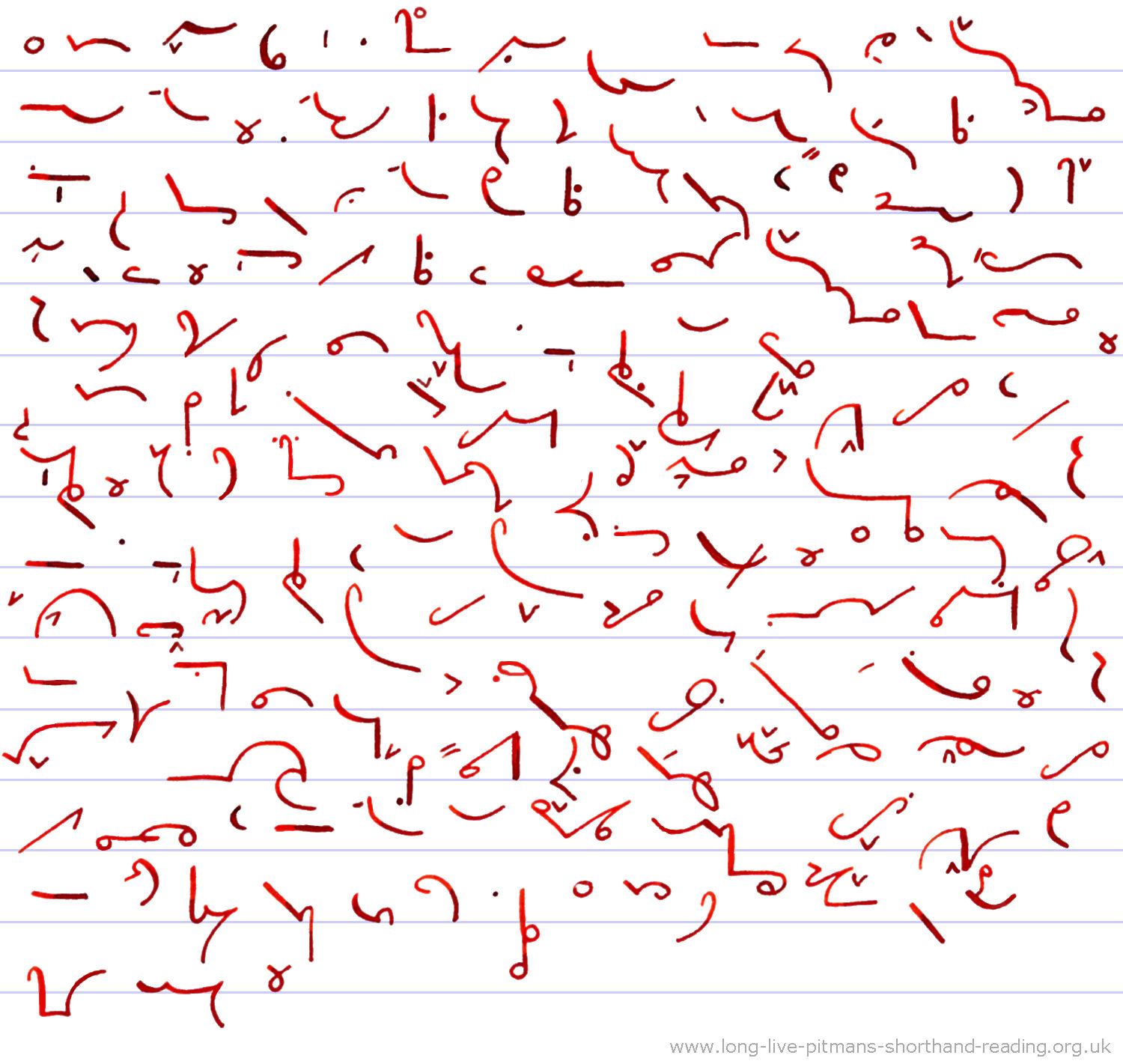
As I am writing this on a dark rainy evening, I can hear lots
of fireworks going off. The official day for them was the fifth of
November, four days ago, but they began to be let off several days
before that, as that weekend was dry and not too cold. Gone are the days
when single small fireworks were the norm, although I am sure there are
still some providing a good display in people's back gardens. But when I
am sitting at the computer by the window, it is only the* giant loud ones
that are noticeable. I think their attraction, apart from the sheer size
and noise of the effects, must be* that they give a good continuous
display without any further action being required. As I can see houses
on the lower ground further away, I always have the camera handy so that
I can easily get some video of the starbursts, whizzes, pops and bangs.
Although I like the colourful seed-head shaped bursts, I find the most
amusing* ones are the screamers that go off in spirals in all
directions, whining loudly as they go, and they are definitely better
viewed from a distance and I am not sure I would like to be standing
directly underneath.
* "it is only the" On its own, "only" is written
with full N and L strokes
* Omission phrase "mus(t) be"
*
"amazing" "amusing" Always insert the vowel
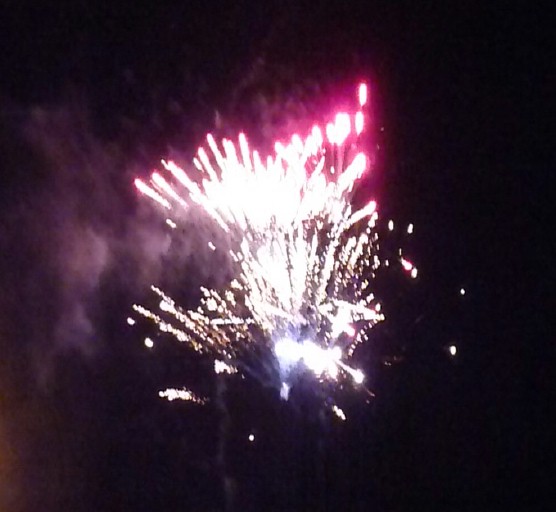
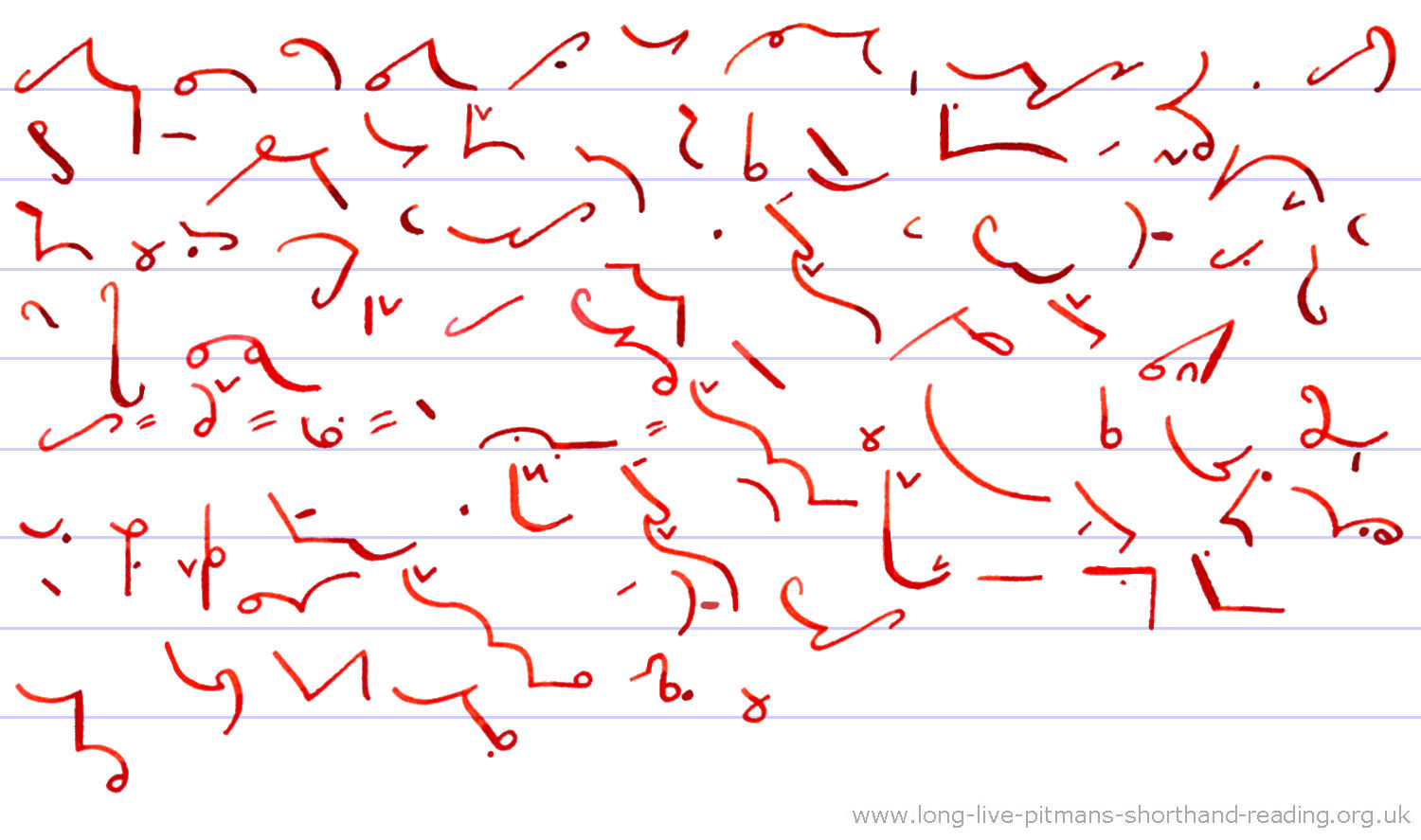
We have had some very heavy rain in the last month, but in
between the showers the weather has been quite reasonable for the time
of year, although it is becoming damper and chillier all the time* . I
can't* imagine that anyone could have had a bonfire with everything so
wet, but then that particular tradition seems to have* died away over
the years, to be replaced by the huge one-size-fits-all mega-firework.
After it is finished, there is no need to stay outside poking a dying
bonfire or tidying up the charred remains of small fireworks, and so
everyone can get back indoors for their party nibbles and treats.
* Omission phrases "all (the) time" "seems (to) have"
* "can't" Always insert the vowel in apostrophied phrases
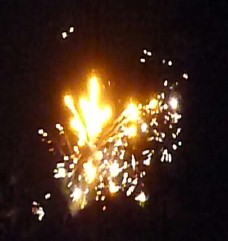
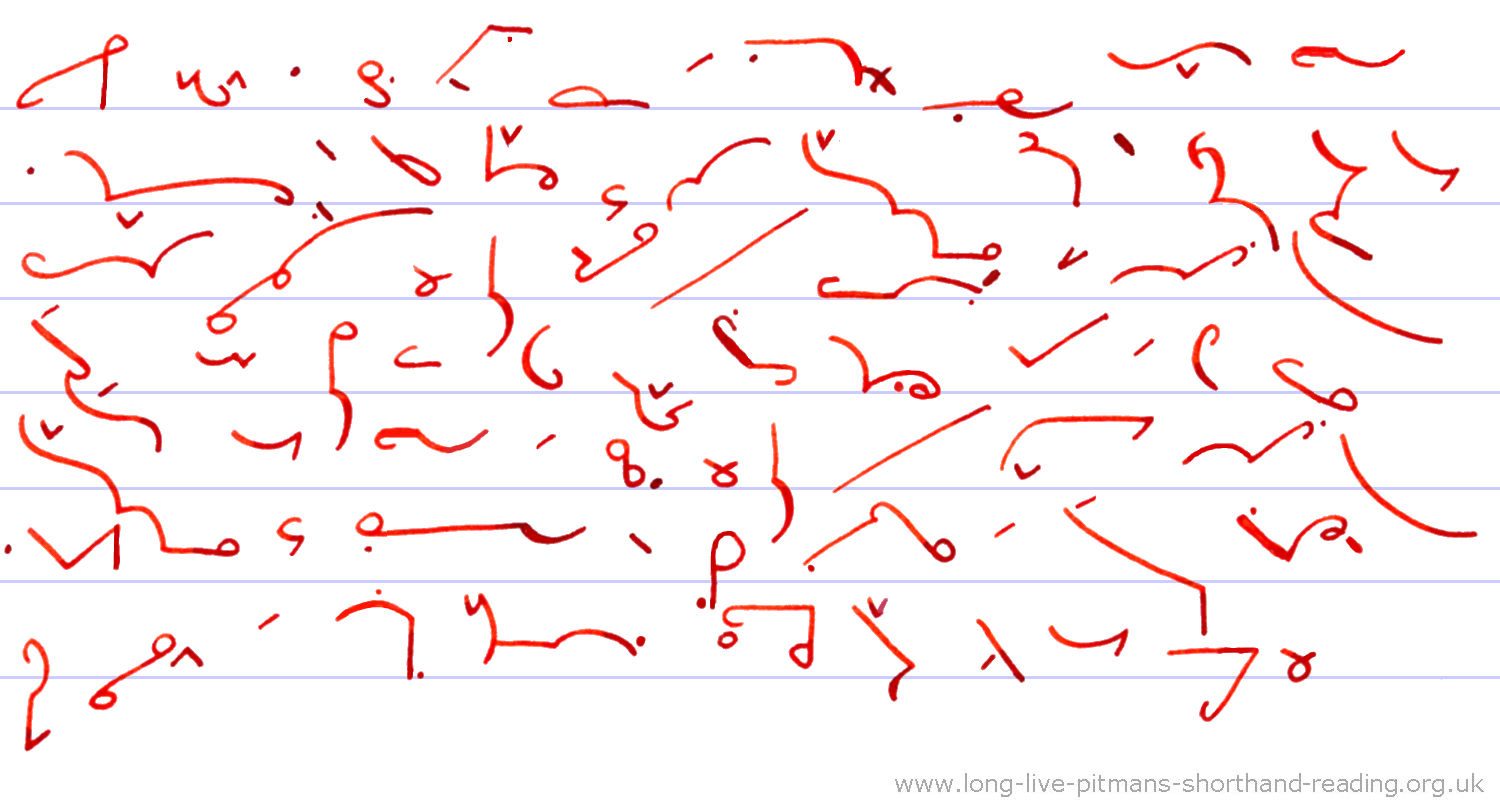
Yesterday I found a spent rocket stick and cardboard casing
in my garden, a reminder of past times when the little fireworks were
all that there were* available for the normal householder. It was always
rather gloomy on the morning after Bonfire Night, as it was called then,
to find the blackened remains of our and other people's fireworks in the
garden and streets. It was rather like the morning after a party, with
the scattering of sweet wrappers and popped balloons throughout the
house, and empty ice cream cartons piled up in the kitchen.
* Omission phrase "that there (w)ere"

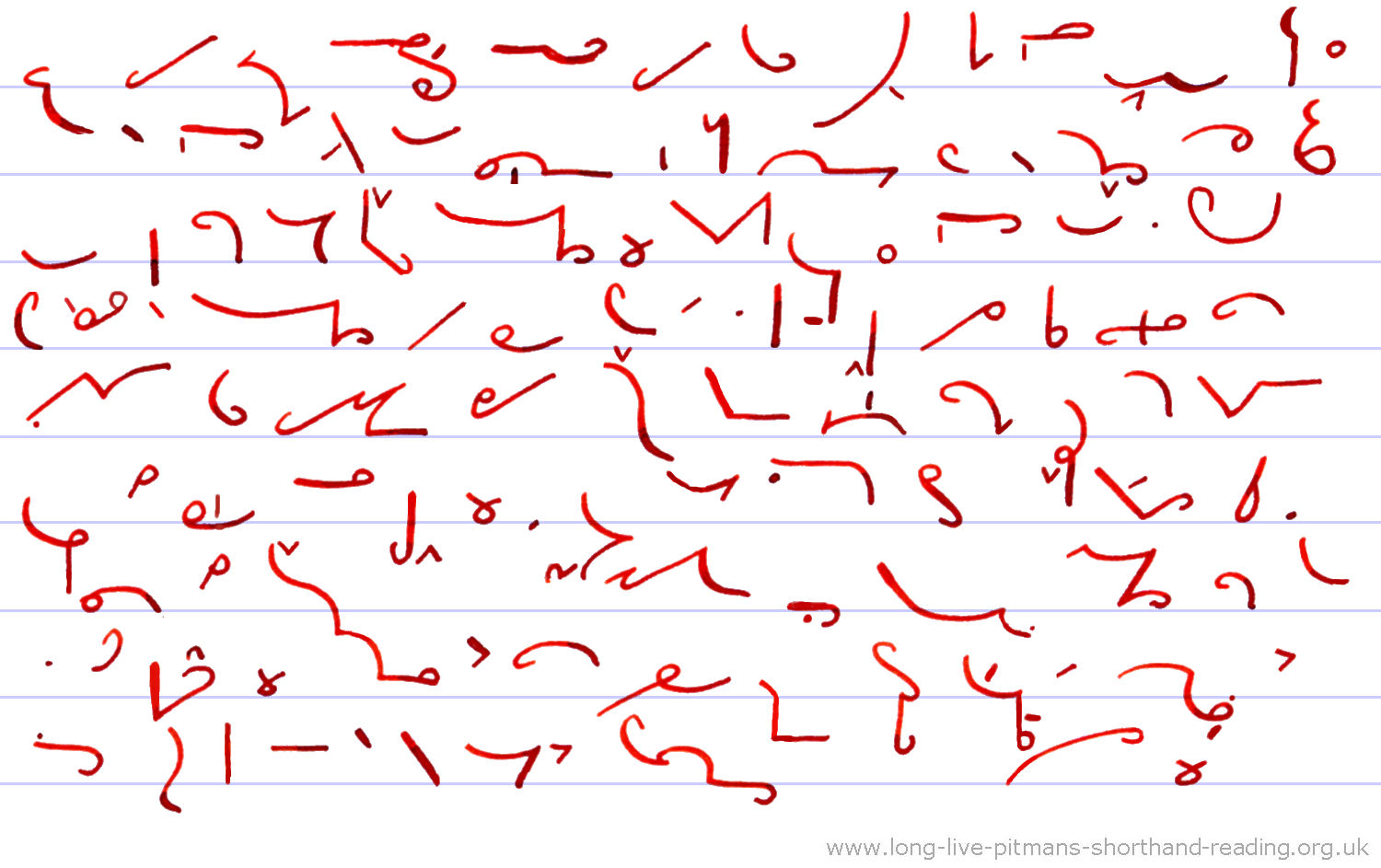
Whenever we hear the explosions going on, we often shudder at
the cost, knowing that it has all "gone up in smoke" but I do make the
effort to remind myself that this is no different from any other type of
entertainment. Party food is gone in a flash, other sorts of
entertainment are soon over, and a day out runs its course more rapidly
than we would like, as we arrive back home from the seaside or park
visit as the sun goes down. The fuel in the car has been burned just the
same as the fireworks, and we have gained benefit and enjoyment from it* for a short duration. All the more reason to take plenty of photos and
movies of the action so that it can all be enjoyed over and over again*
later on.
* "from it" Halving to represent "it"
* Omission phrase "over (and) over
again" The second "over" is reversed in order to join the phrase
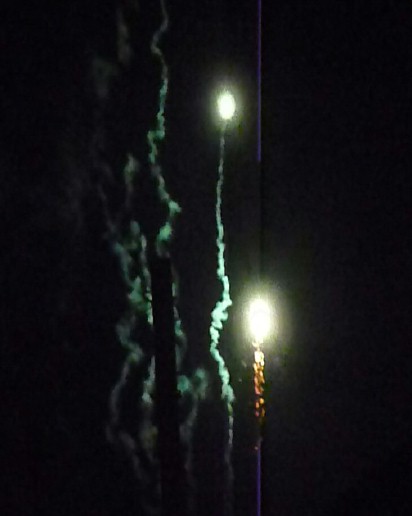
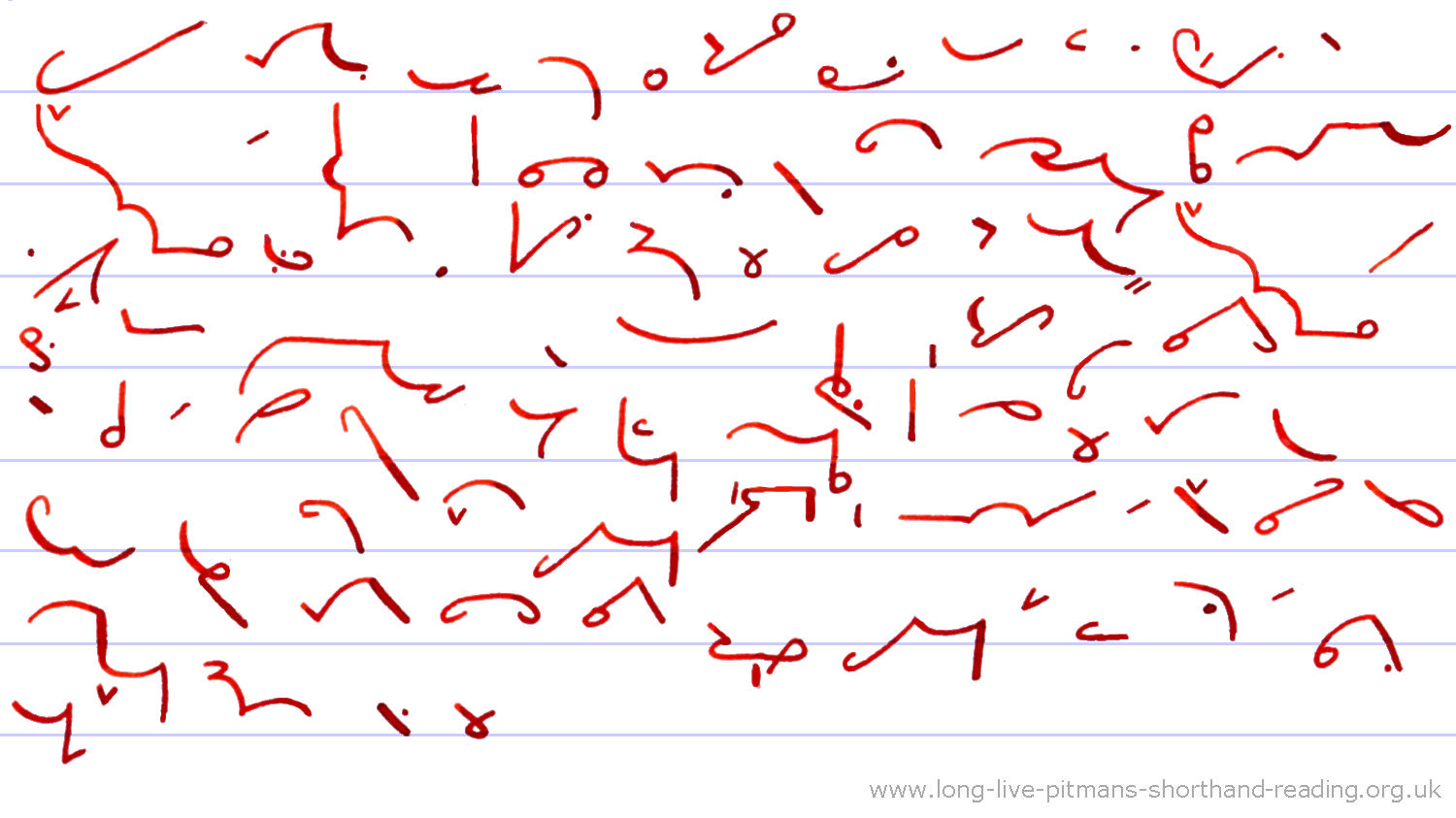
Where I live New Year is always seen in with a flurry of fireworks, and
at that time it seems to me* to be more meaningful, as it is marking a
real event, the turning of the year. Once all the November fireworks are
spent, I can look forward to another display but that one will happen
all at once, and last probably only twenty minutes at most. I will have
everything visible from my window recorded on camera and by half past
midnight I will be more than happy to close the window on the cold air
and slip into the warm bed. (660 words)
* "to me" In phrases, the short forms "me" and "him" sometimes need a
vowel for clarity
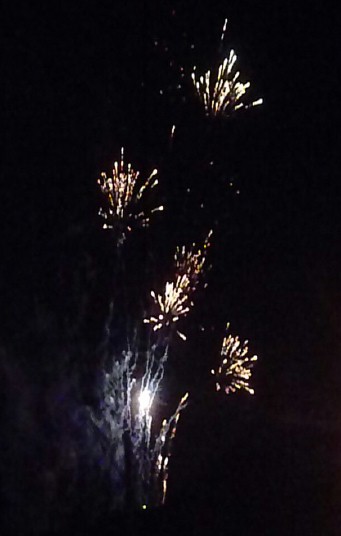
The screamers, erratic and indecisive,
obviously they thought they knew the shorthand and didn't feel the need
to practise
Top of page
Simple 1 (For beginners) (15 November 2014)
Using only the early rules, with no
hooks, halving or doubling
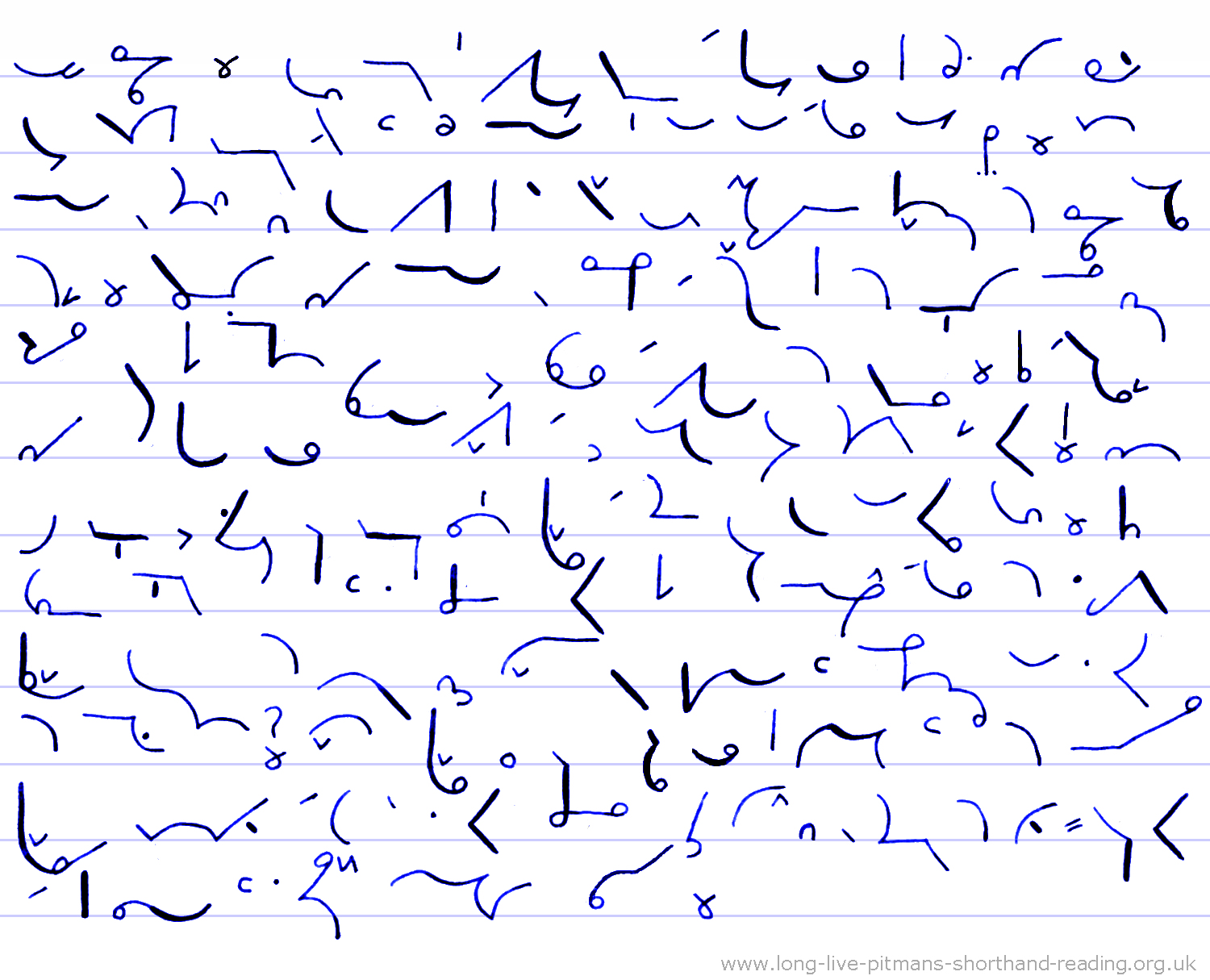
1. New Skills. If you keep on reading the book and doing the things it
says, you will soon have the ability to keep up with what is going on in
any office in the city. I am going to assume you have read it all by now
and I think we can admire your skills in this area. Basically you are
going to succeed and arrive at your goal because you were always busy at
the academy listening to the lessons and reading your books. It is
obvious you are doing things right and would never fall asleep on the
job! You may wish to go to the agency today to get some advice and ask
if they have any jobs for you. Do you think you can cope with a desk job
at the council* office or a web design firm or maybe you would like to
be dealing with customers in a shop or cafť? My advice is to discuss all
these things at length with your careers adviser tomorrow and think of a
job which would allow you to escape your low-paid job and do something
with a higher monthly salary. (194 words)
*
"council" Note the vowel against the L is in third place. For
"counsel" it would be in second place.
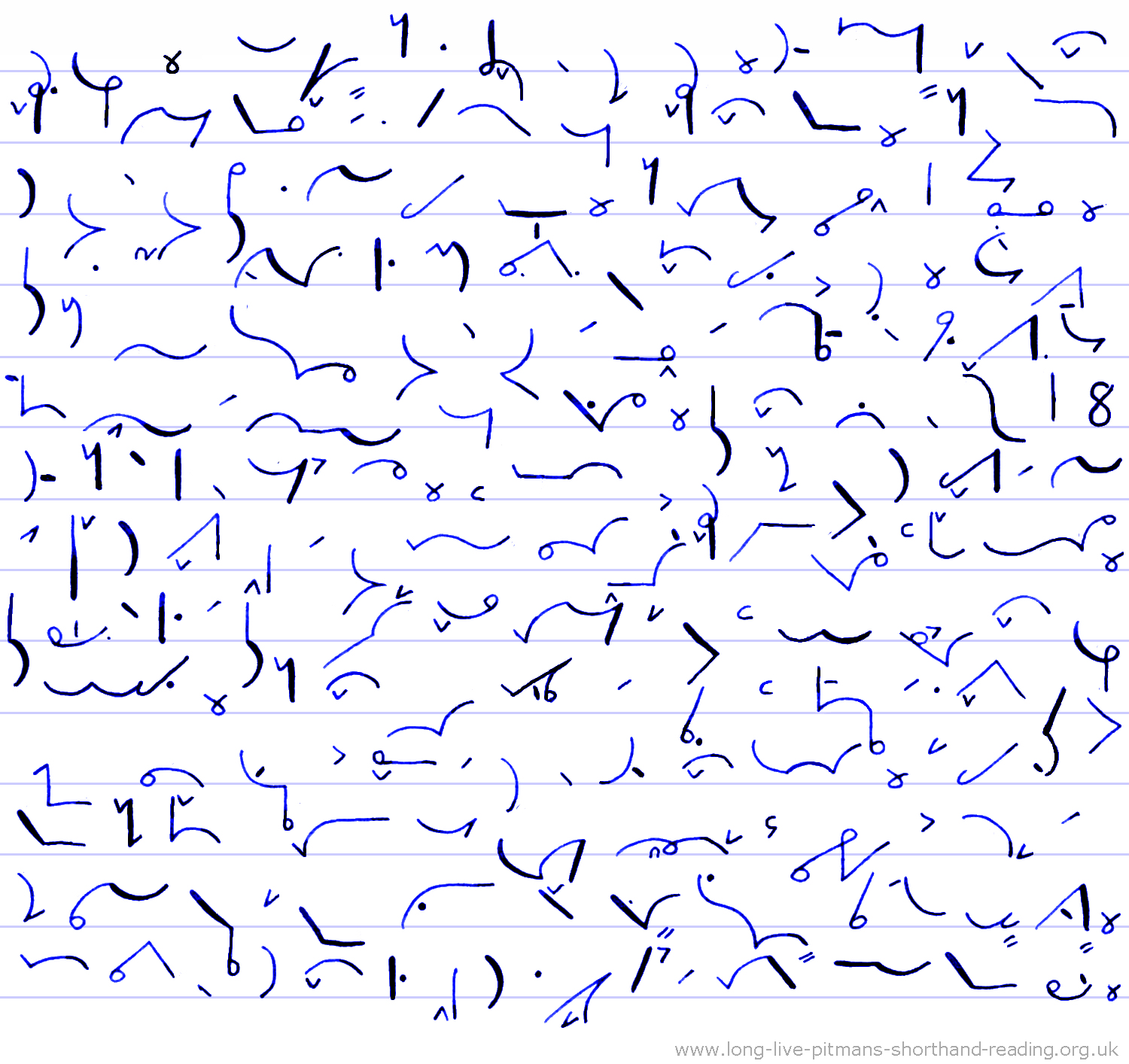
2. Seaside Visit. In July I had a desire to see the seaside. So on
Monday I put my lunch box and a large map into my bag. I had to check
the car was full of fuel, as it was a long way to go. I had to leave the
house at six. It was a lovely day and I was happy to be on my way to the
sea. Along the route, I saw many farms full of sheep and cows, and
meadows of hay ready for the autumn mowing and making into bales. It was
my aim to arrive at eight* so I had all day to enjoy myself. When I came
to the seaside I saw the beach was wide and long, and the tide was right
out and full of many small cool rock pools with tiny animals. It was
sunny all day and it was really nice to lounge*
on the beach with nothing to spoil my visit in any way. I had my meal of
rolls with cheese and tomatoes and a ripe juicy peach, and took some
photos of the sky and sea, to show my family. On the way back I had the
time to look in the village museum with the history of the area, and saw
the sailing boats on the big lake by Bell Farm, which is off New Road. I
am happy to say my day out was a real joy and I will be going back soon.
(250 words)
* "eight" Best written as a numeral when it is
alone, as the outline
could look like a figure one.
* "lounge" Insert the diphthong, so it does not look like "lunch" which
would also make sense here
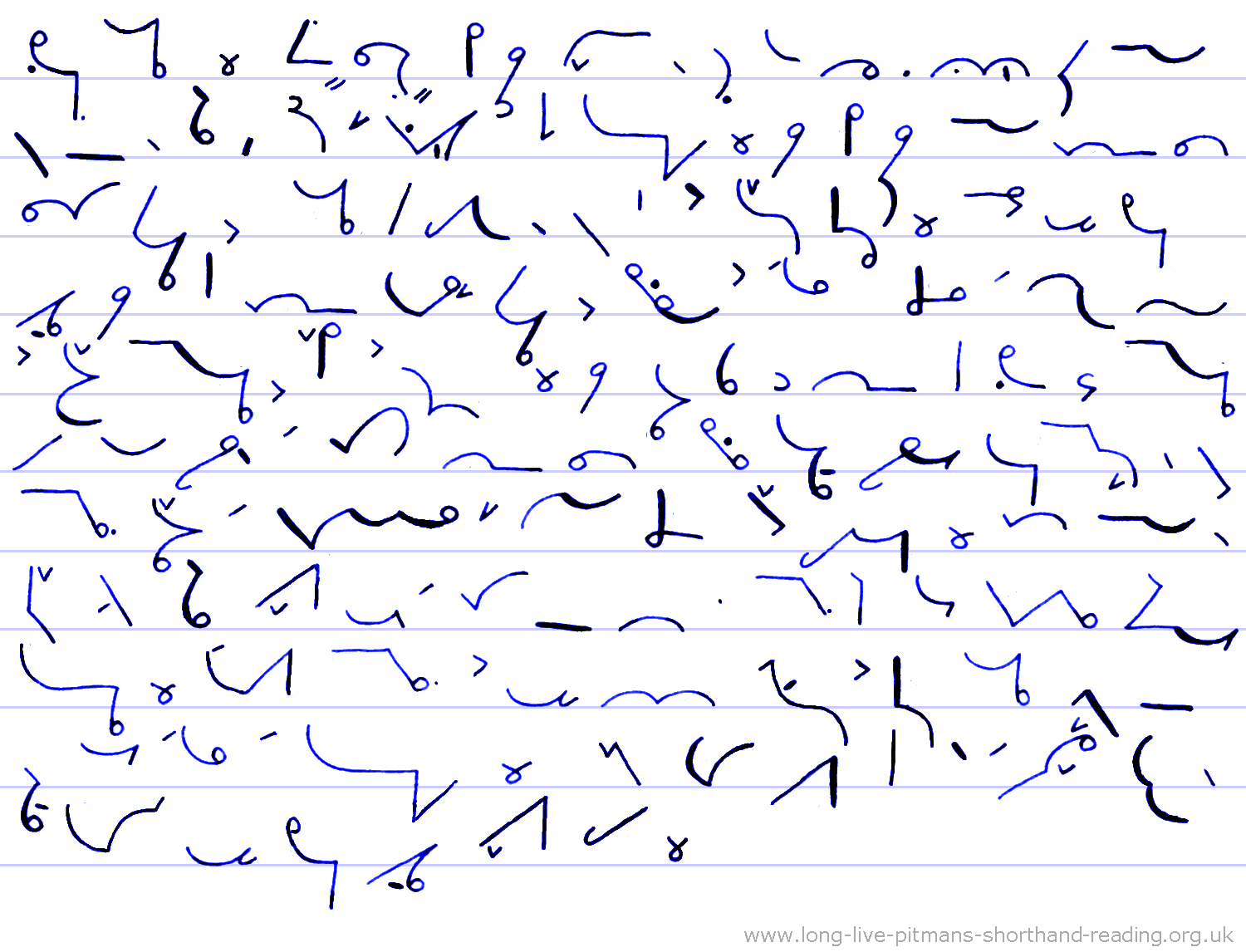
3. Safety Notice. Jack Smith said he would like to see for himself the
memo which was going to be given to all those who were on the payroll at
the factory. He said he was going to make some small changes to the
notice which we have to put on all the fire doors. Because of the new
safety rules he had to make various changes to the spacing of the office
desks and move many of the filing cabinets to the side of the room. He
feels this would make it safe when the cabinets are in use and also make
some space for those using the photocopier to put the copies, files and
belongings on the long desk by the window. I am going to type up all
this right now and I will give him a copy of it for the purpose of
checking the facts. Forty* copies of the new memo and four* of the door
notice should be given to those in the office and factory. I hope they
will read it all and realise they have to follow the new safety rules
right away. (190 words)
* "forty" and "four" Note the different vowels
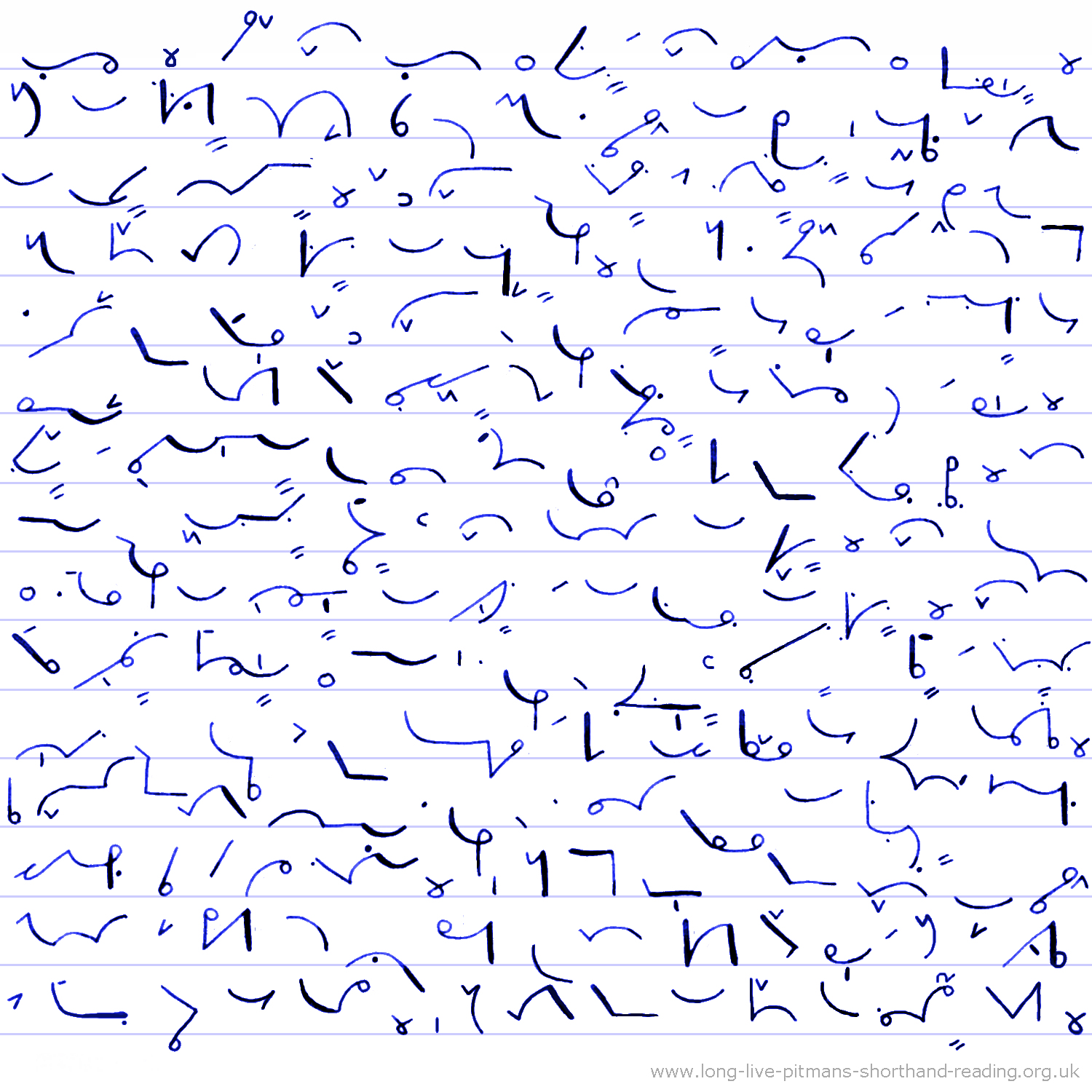
4. Names. Hi, my name is Jenny and my surname is Dixon. I was in
Adelaide earlier this year and I have a house in Sydney, but nowadays I
live in New York, America. I would like to visit Paris and the Alps in
the south, and if I have time also Delhi in India. If I had a higher
salary or got a really big bonus, I would like to visit Alaska for the
snow and Canada for the skiing, followed by Hawaii or the Bahamas for
the palms, sea and sun. China and Hong Kong have some awesome views, as
do the big Japanese cities. I am going to visit Niagara Falls with my
family in July. My firm has an office in Moscow in Russia and in Venice
in Italy. My boss Russell Thomson is going on a visit to Chicago with
Harry Dawes and Pamela Murray to take photos of the big factories and do
the new designs for the showroom facilities. It is likely I will be
making a visit to a small business in Tennessee on Monday and Wednesday,
which is much less appealing. But I do get to go back to my own house
and family on the Saturday or maybe Sunday if I am delayed by the snow
and ice on the roads and the foggy patches in the valleys. But I think I
will be back in time for Samuel's party. (239 words)
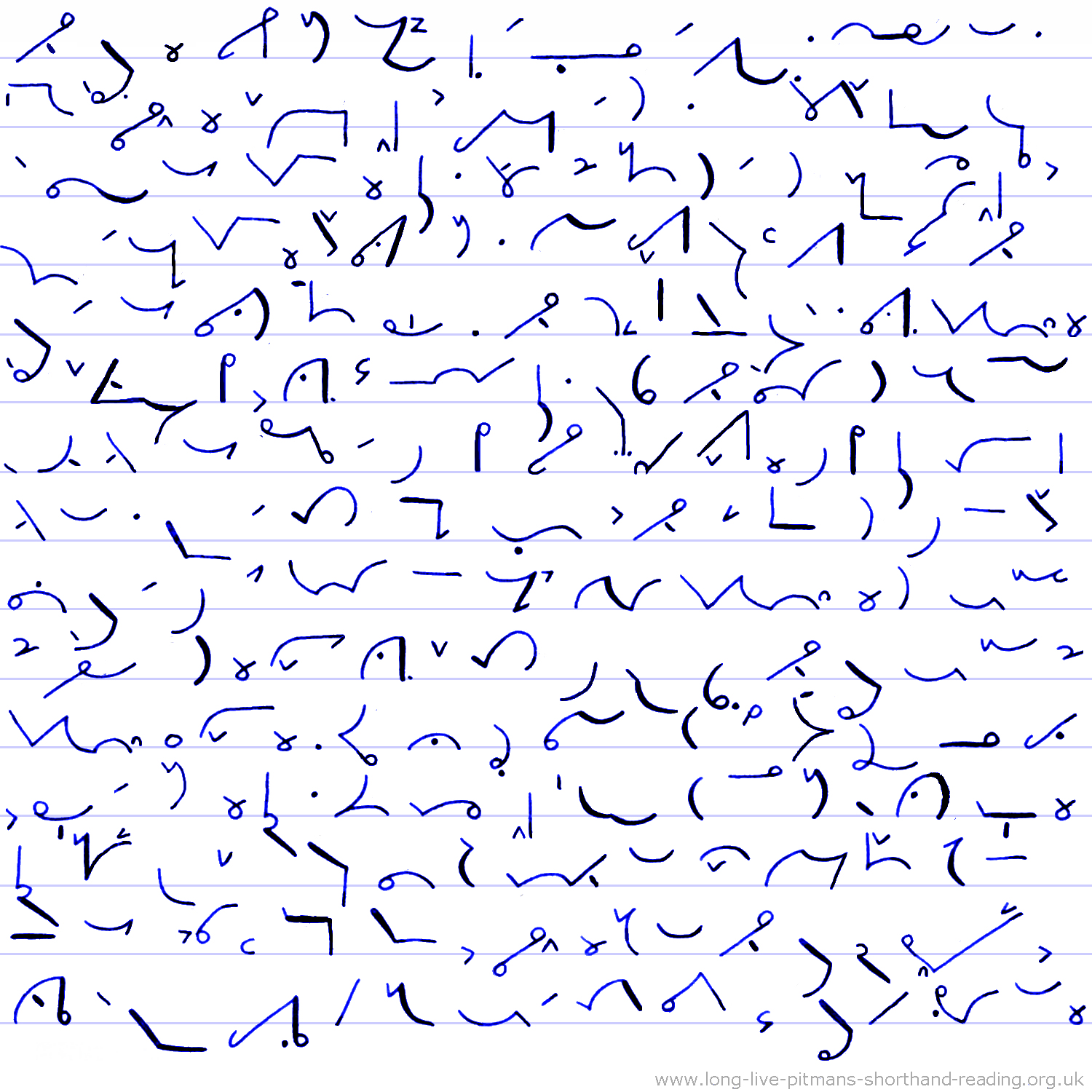
5. Rose Bushes. Yesterday I was enjoying tea and cakes, and reading a
magazine in a coffee house. I looked out of the window and saw a
passer-by taking photos of something in the park. It was a puzzle what
the item was and so I took myself out of the room and into the park. By
the hedge I saw a long wide path with red and yellow rose bushes and in
the hazy autumn sun the rose area had become full of a heady perfume. I
jokingly said to the lady with the camera it was a pity this rose smell
was never going to show up in the snaps, and she said, "Yes, you are
right." She said it was to look it up in a book and also get the name of
the rose on the tag, so she can buy the same bush, and she and the
family can enjoy the lovely perfume. So now I knew what the reason was.
Like the lady, I also wish to have these rose bushes, now I know what
the perfume is like. The shops may cease selling them as the fall season
gives way to the snow and ice. It would be a shame to miss out on having
them because I was too lazy to go. It would be ideal if I bought some of
them tomorrow in my lunchtime and they can go in the soil when I get
back to the house. I think any rose bush would be superior to the loads
of big weeds which I have now and I will be happy when the bushes are
safely in. (276 words) (Total words 1149)
Phrases for non-beginners:

1. going on, you have, to succeed, and would
2. history of the
3. who were, side of the, this would, copy of, for the purpose
4. I would like, it is likely, small business, to my own
5. coffee house, out of the, lunchtime
Top of page
Comet Landing (19 November 2014)
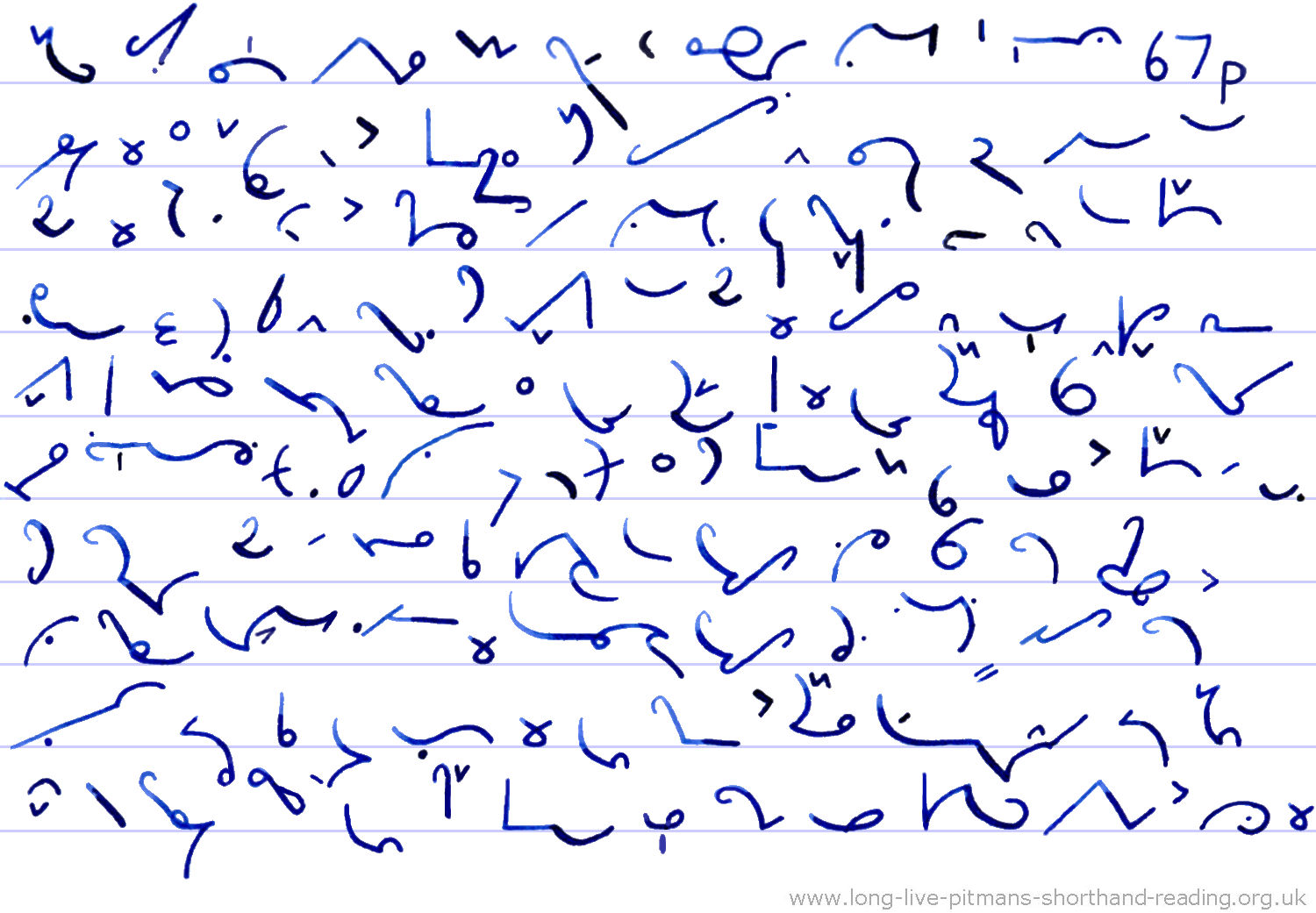
I have been watching some reports about the probe that successfully
landed on Comet 67P recently. As I listened to all the technical
jargon*, I was wondering how some of them* would be written in
shorthand. Although a lot of the terms are lengthy, they do provide a
great opportunity for time saving, when you see just how brief they are
to write in shorthand. Once you know the outline, you can write it
almost before the person has finished saying it. Even the scientists
themselves prefer to use acronyms (the first letter of each word), as
they are talking about these things all the time and need their own
verbal shorthand, and of course it is helpful for everyone else as well,
from journalists to the lay person following the article. For example,
everyone says NASA and one very rarely hears its full name. If you
practise all the science vocabulary here, I think you might be
pleasantly surprised if you try taking notes from the next television
report of the mission* .
* Omission phrases "tech(nical) jargon" "some (of) them"
* "mission" Dot vowels are written inside a shun hook
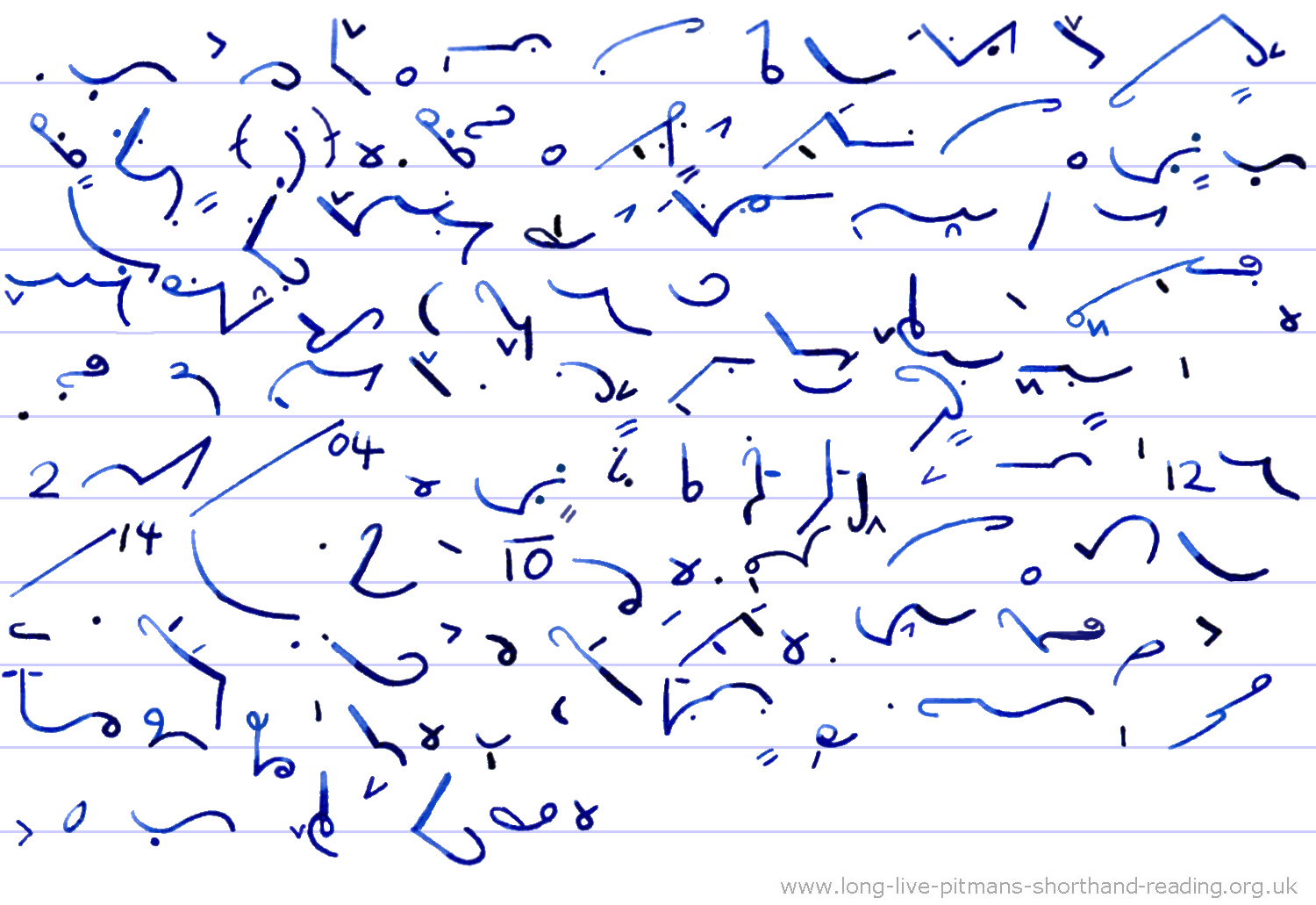
The name of the mission type is comet lander and it is being operated by
the European Space Agency (ESA). The spacecraft is Rosetta and the
robotic lander is Philae*, named after the Egyptian bilingual stone and
the obelisk monument which, in the nineteenth century, between them
provided enough information to begin* the deciphering of hieroglyphs.
The crafts were launched by an Ariane rocket in French Guiana on 2 March
2004. Philae achieved its controlled touchdown on the comet on 12
November 2014, after a journey of ten and a half* years. The small
lander is also being called a probot, a combination of the words probe
and robot. The following paragraphs list all the autonomous system
instruments on board. Note that Ptolemy is not an acronym but refers to
the first name deciphered on the Egyptian stones.
* "Philae" This is being pronounced many different ways
* "to begin" Based on the short form phrase "to be", likewise "to
become"
* "ten and a half" See
www.long-live-pitmans-shorthand.org.uk/vocabulary-numbers.htm for
more ways to write fractions
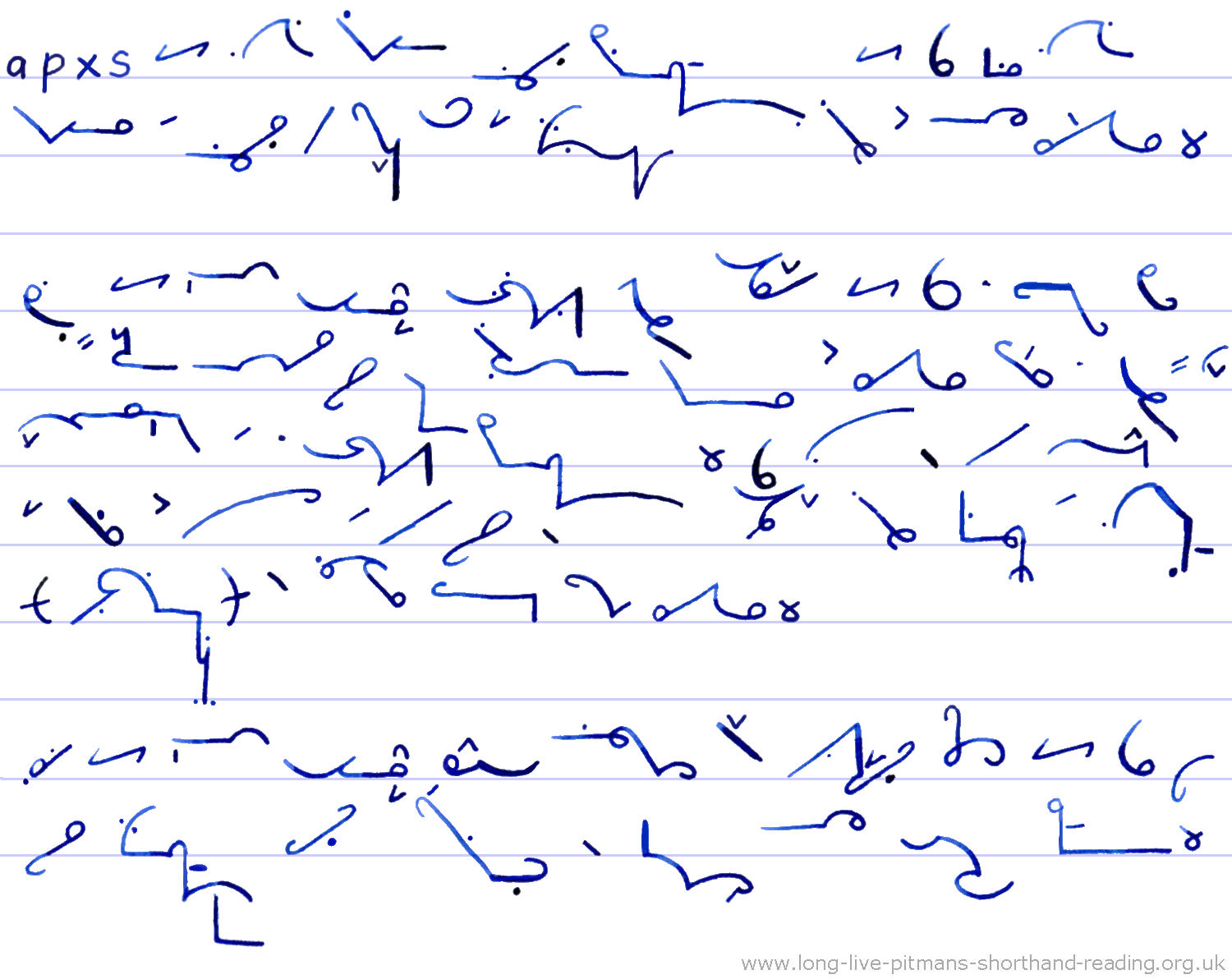
APXS* : Alpha particle X-ray spectrometer.
This detects alpha particles
and X-rays, which provide information on the elemental composition of
the comet's surface.
«IVA* : Comet nucleus infrared and visible analyser.
This is a group of
seven identical cameras used to take panoramic pictures of the surface
plus a visible-light microscope and an infrared spectrometer. These
latter two are mounted on the base of the lander, and are used to
analyse the composition, texture and albedo (reflectivity) of samples
collected from the surface.
CONSERT: Comet nucleus sounding experiment by Radiowave Transmission. This will use electromagnetic* wave propagation to determine the comet's
internal structure.
* "APXS" This is an initialism, rather than acronym, as it cannot be spoken as
word. Letters are generally better in such cases, although if it occurs
frequently, you might prefer to make up a convenient outline to cover
it.
* "«IVA" Note the cedilla under the letter C, making it an S sound
* "electromagnetic" Not using the short form "mag(netic)"
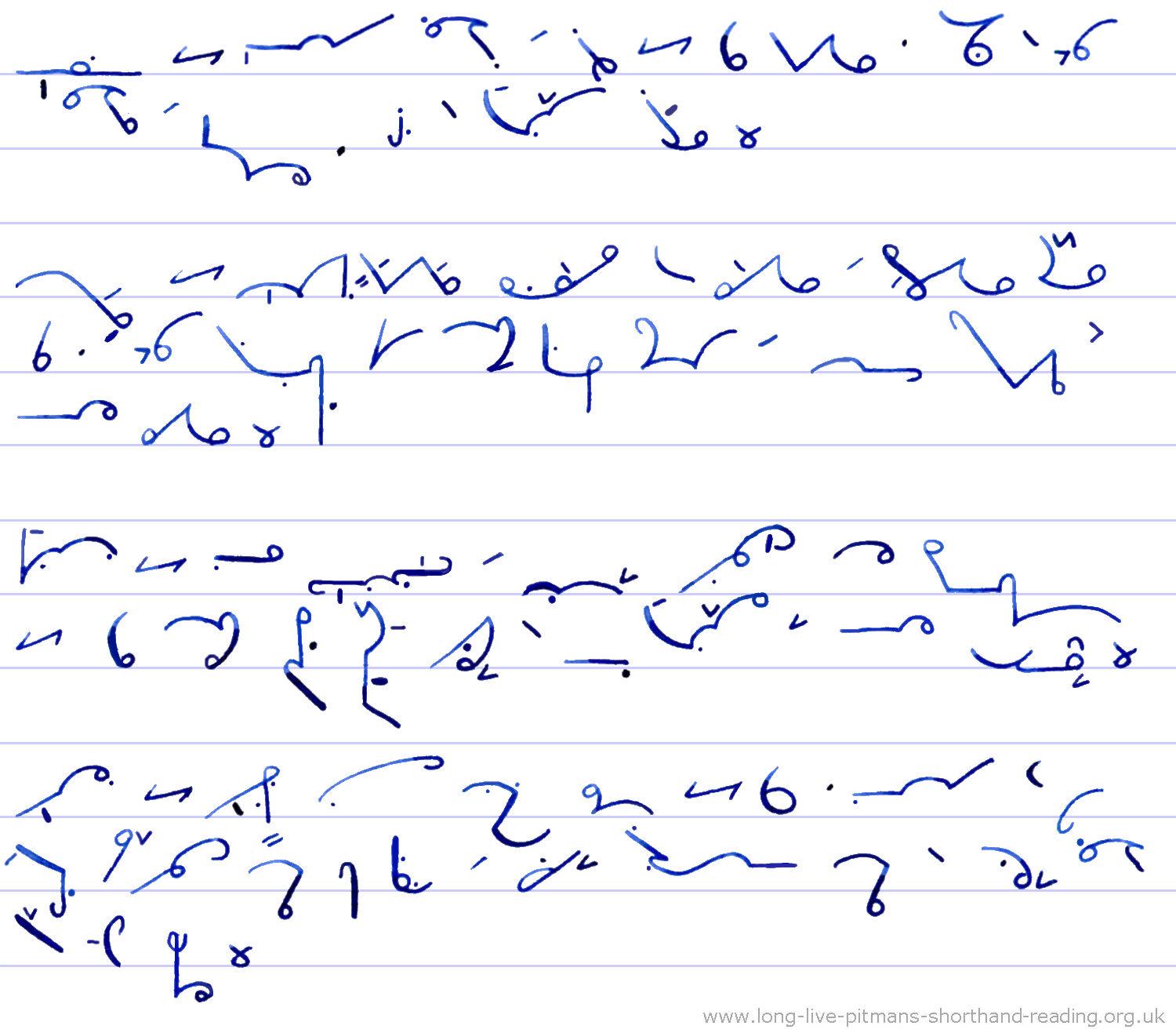
COSAC: Cometary sampling and composition. This performs an analysis of
soil samples and determines the content of volatile components.
MUPUS: Multi-purpose* sensors for surface and subsurface science, which
is a soil penetrator which will measure the density, thermal and
mechanical properties of the comet's surface.
PTOLEMY: gas chromatograph and medium resolution mass spectrometer. This measures stable isotope ratios of key volatiles on the comet's
nucleus.
ROLIS: Rosetta lander imaging system. This is a camera that will obtain
high-resolution images during descent and stereo panoramic images of
areas sampled by other instruments.
* Most "multi-" outlines have a halved L, but full strokes are used when
necessary to make a clear join with the next stroke
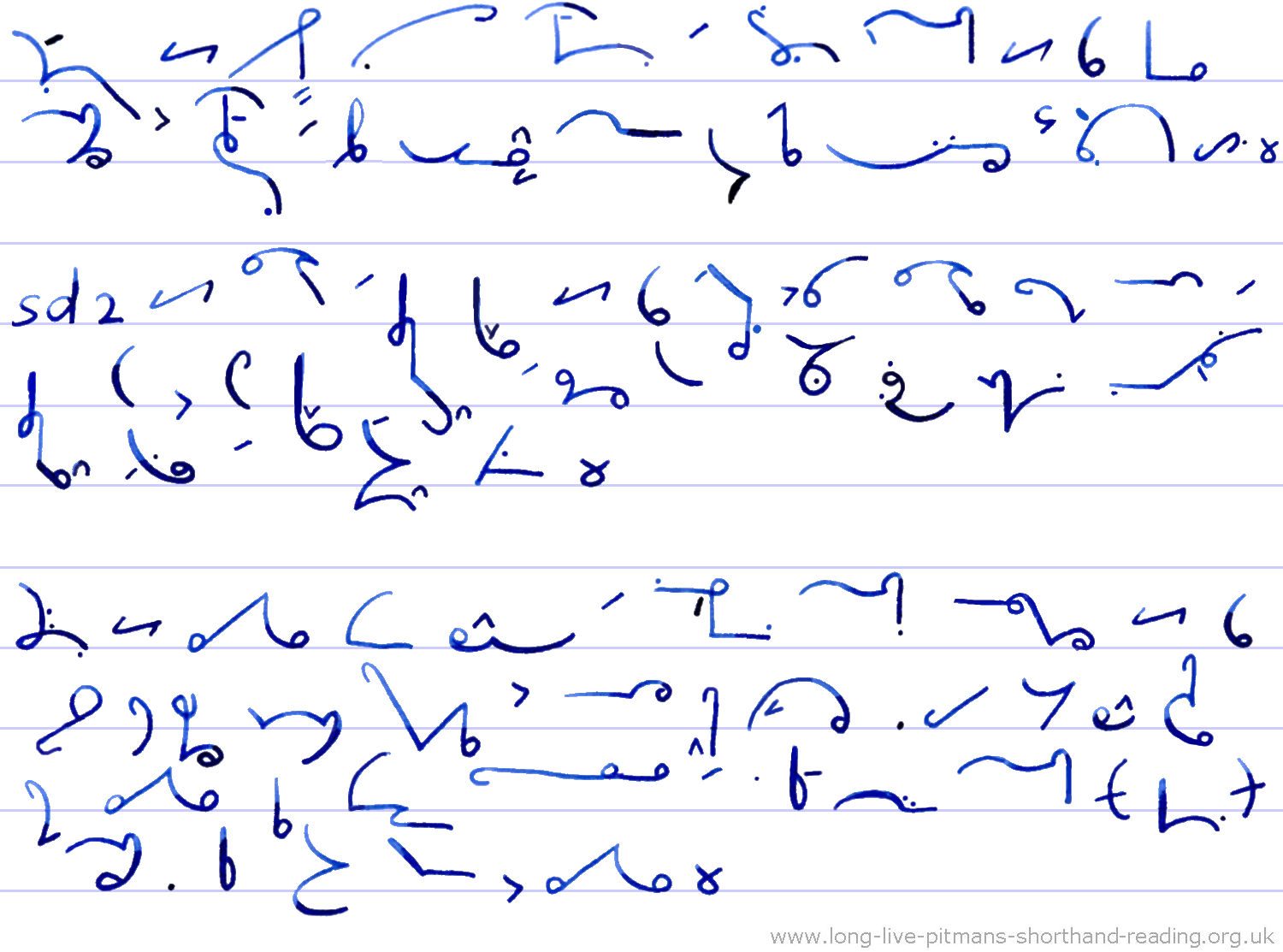
ROMAP: Rosetta lander magnetometer and plasma monitor. This takes
measurements of the magnetosphere and studies the nucleus' magnetic
field and its interactions with the solar wind.
SD2: Sample and distribution device. This obtains soil samples from the
comet and distributes them to the other devices and systems for
analysis, consisting of drill, carousel, ovens and volume checker.
SESAME: Surface electric sounding and acoustic monitoring experiments. This uses three instruments to measure properties of the comet's outer
layers, the way in which sound travels through the surface, its
electrical characteristics and a dust impact monitor (DIM) measures the
dust falling back to the surface.
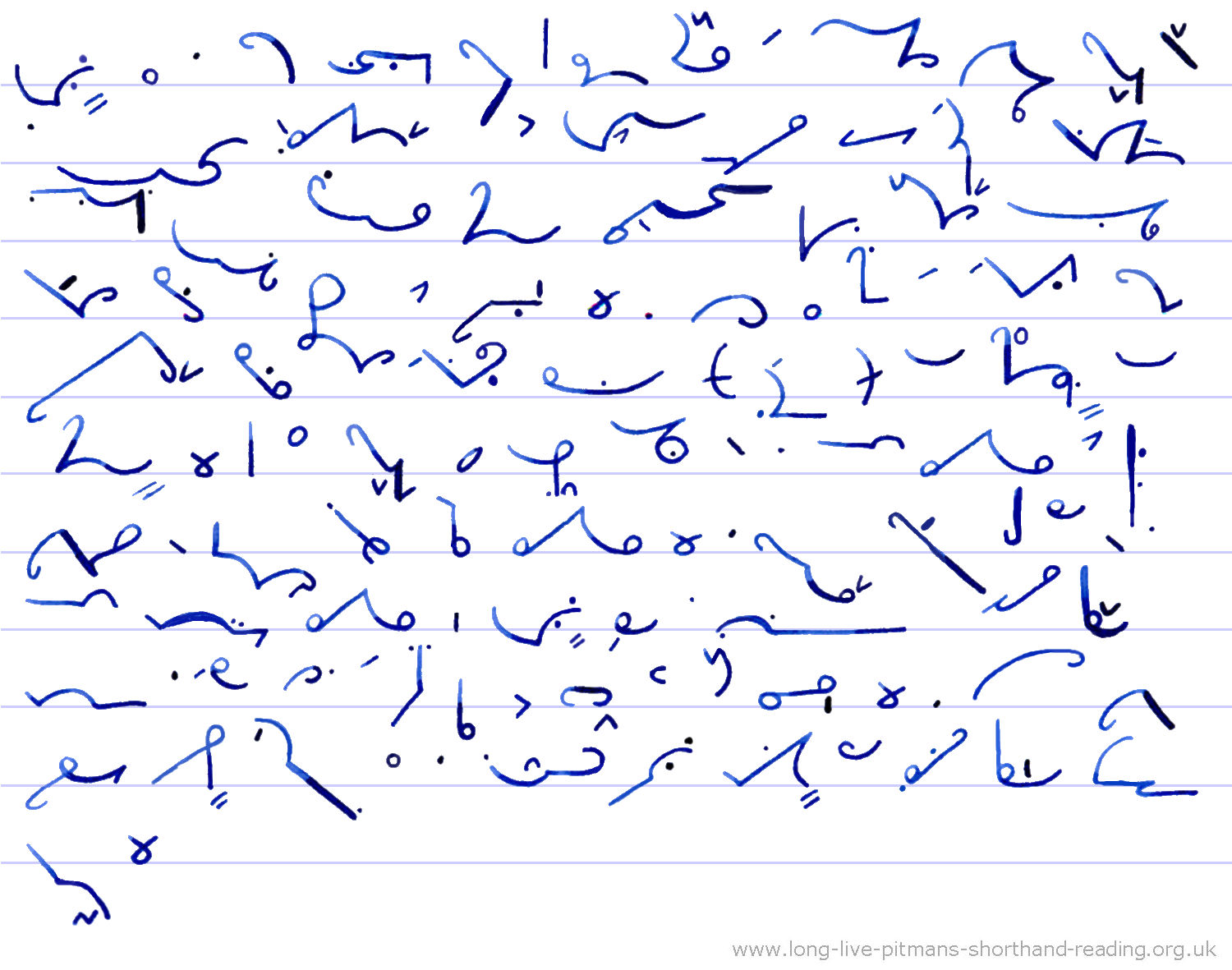
Philae is a very integrated project at system, science and management
levels, provided by an international consortium of the following
countries* : Austria, Belgium, Canada, Finland, France, Germany, Hungary,
Italy, Ireland, Netherlands*, Poland*, Spain, Switzerland and the UK.
The mission is tracked and operated from the European Space Operations
Centre (ESOC) in Darmstadt in Germany. It has provided the first in situ
analysis of a comet surface, and the data will be used to determine the
composition of its surface. A previous probe had been sent to a comet to
impact the surface, but Philae is not an impactor and was designed to
make a soft landing and attach itself to the ground with ice screws. The
lander will be using the Rosetta Orbiter as a communication relay to
Earth, in order to* conserve its own electrical power.
* "countries" With a long list of proper nouns, it is not really necessary to insert
all the caps marks underneath
* "Netherlands" Insert the vowel, as this outline is very similar to
"England"
* Insert vowel in "Poland" if context might also suggest "upland"
* Omission phrase "in ord(er to)"
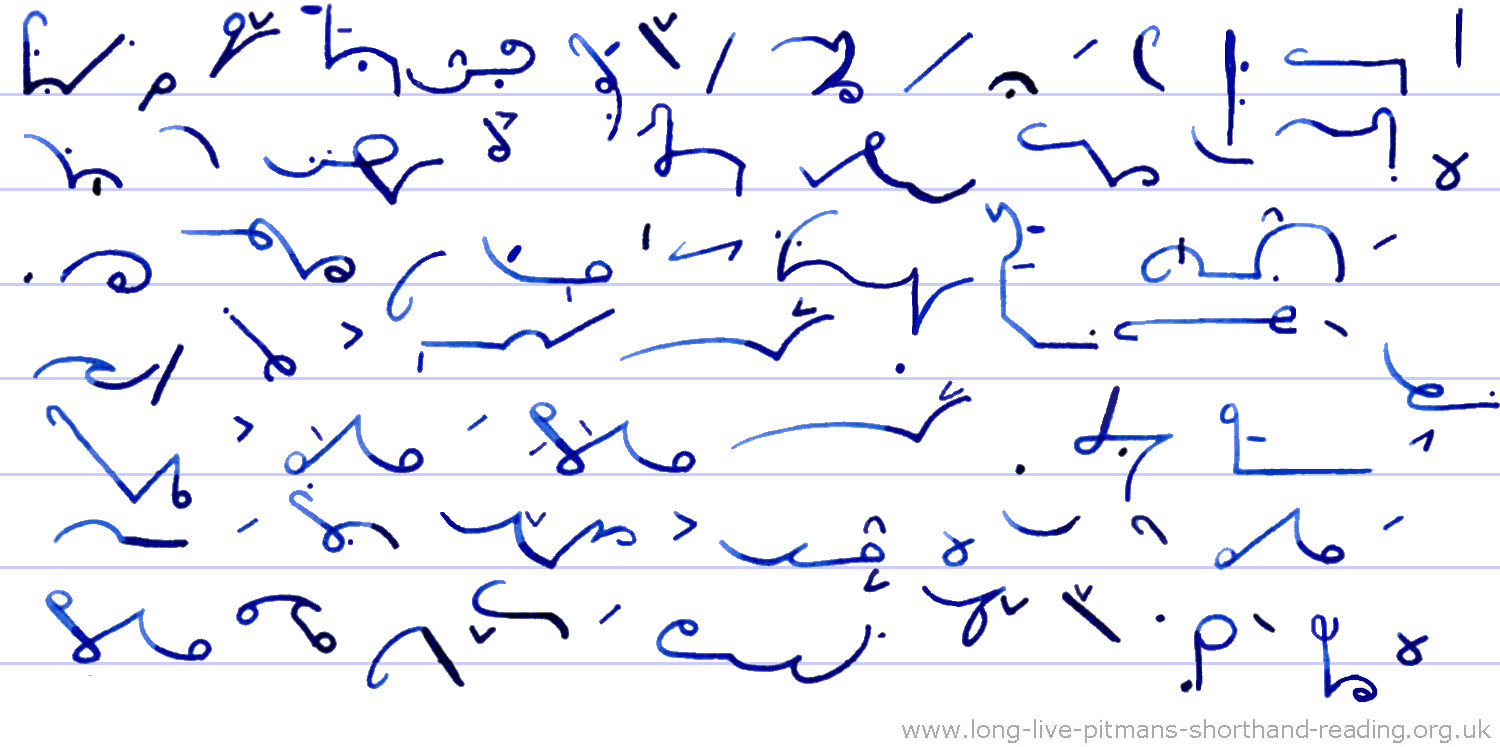
Telemetry is the highly automated communications process by which
measurements are made and other data collected at remote or inaccessible
points and transmitted to receiving equipment for monitoring. The
mission's experiments will focus* on "elemental, isotopic, molecular and
mineralogical composition of the cometary* material, the
characterization* of physical properties of the surface and subsurface
material, the large-scale structure and the magnetic and plasma
environment of the nucleus. In particular, surface and subsurface
samples will be acquired and sequentially analyzed by a suite of
instruments."
* "focus, fix" Always insert the first vowel, as
they are similar in outline and meaning
*
"cometary" Insert first vowel, as the outline is similar to "camera"
* "characterization" Optional contraction
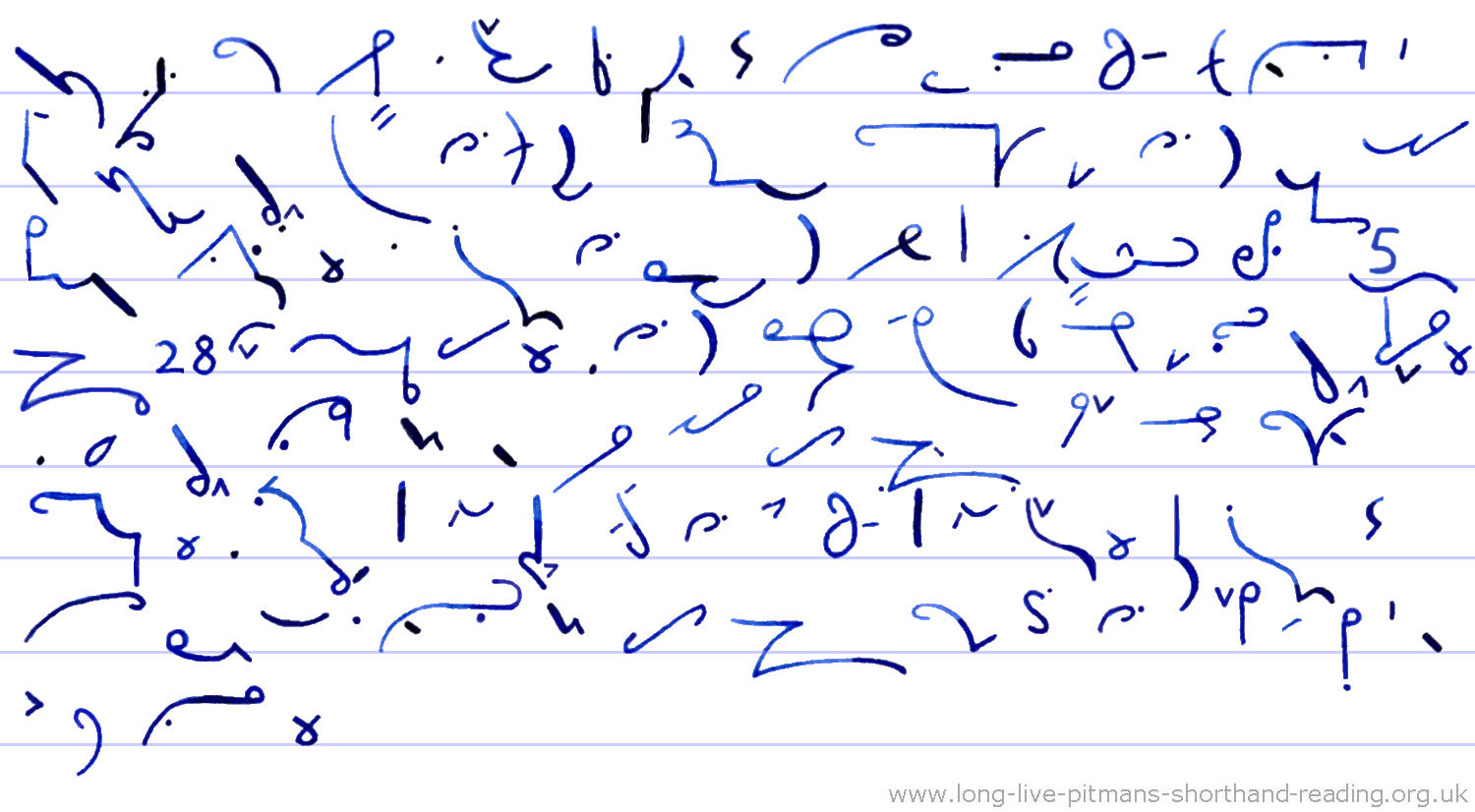
Before detachment from Rosetta, a final test showed that the lander's
cold-gas thruster (located on top, to prevent bouncing after landing)
was not working correctly, but the landing was undertaken anyway, as it
could not be repaired. A confirmed landing signal was received at Earth
communication stations, five hundred million kilometres, 28 light
minutes away. The landing was successful, softer than expected but the
craft bounced twice. The first bounce lasted about two hours and was one
kilometre high, because of the very low gravity. The harpoons had not
deployed upon landing, and the thruster had not fired. It was confirmed
that the lander is now in a location about one kilometre from the
planned landing site and sitting on two of the three legs.
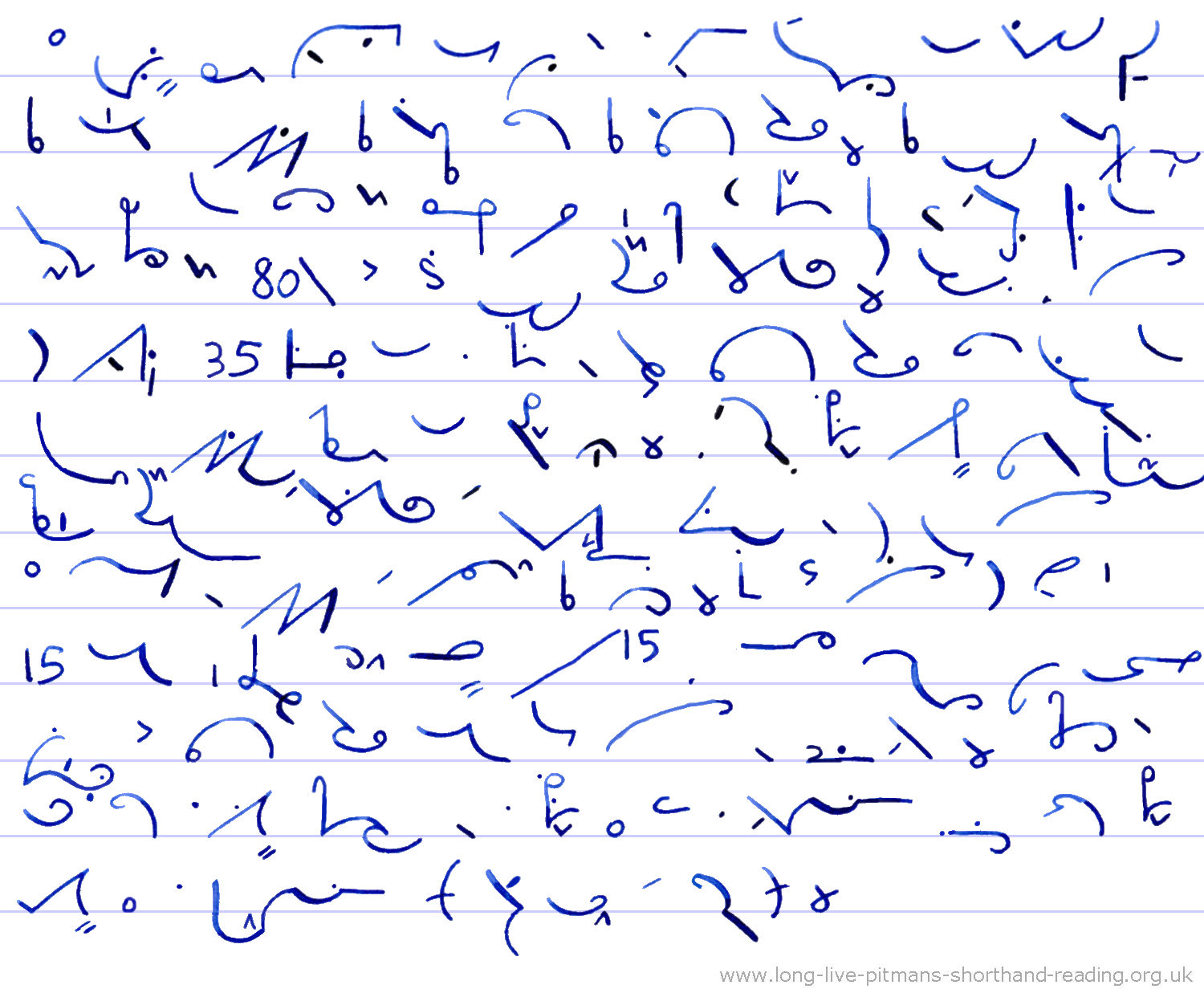
As Philae is now located in the lee of a rock formation, in partial
shadow, it is unable to recharge its batteries from its solar panels.
Its initial battery charge could not power the instruments for more than
about 60 hours, but during that time it was able to obtain data for
about 80% of the planned initial science observations. Finally the
lander was rotated 35 degrees in an attempt to position the solar panels
more favourably, for future recharging, and it is now in standby mode.
The orbiting satellite Rosetta will be continuing with its own
scientific observations, and periodically checking to see if the lander
has managed to recharge and resume its mission. Contact with the lander
was lost on 15 November but it is possible that around August 2015 the
comet's movement will increase the illumination of the solar panels
enough for the lander to wake up. Transmission of information from an
Earth terminal to a satellite is called an uplink connection, and from
satellite to Earth is a downlink (both noun and verb).
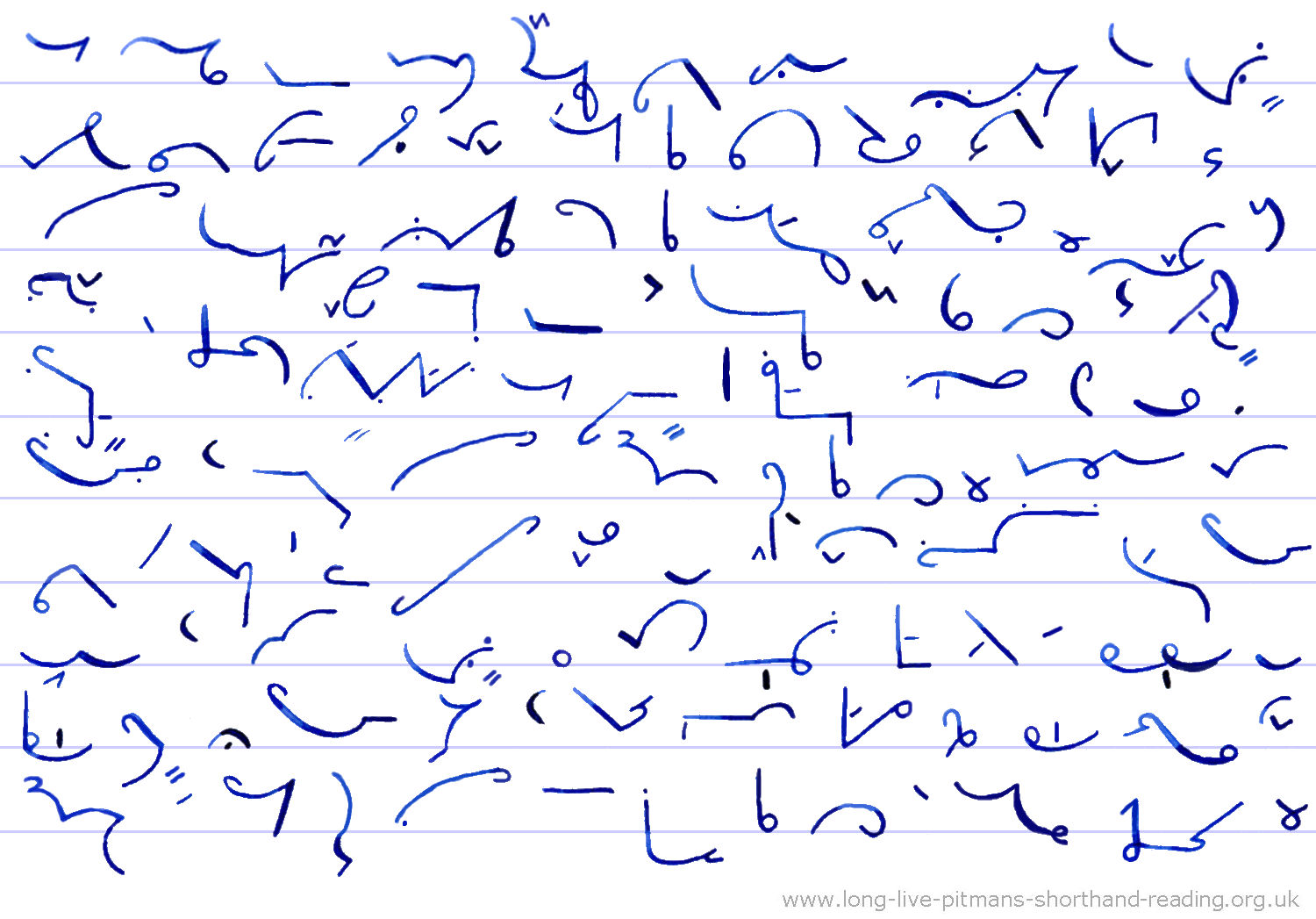
In the months to come, I am sure scientists will be waiting impatiently for Philae to receive some welcome rays of light onto its solar panels,
and will be delighted when the lander eventually emerges from its
enforced hibernation. Meanwhile, I was gratified to discover, whilst
getting together all the facts about this mission, that the Rutherford
Appleton Laboratory in the UK had constructed, amongst other things, the
blankets that keep the lander warm throughout its mission. I am certain
I will sleep much better on cold winter nights, under my acrylic fur
blanket, knowing that little Philae is also cosily tucked up and
snoozing under its own British-made blanket, until that part of the
comet turns towards the sun and brings light, warmth and energy, so that
the lander can continue its mission of investigation and discovery.
(1275 words)
Top of page
Winter Quotes (30 November 2014)
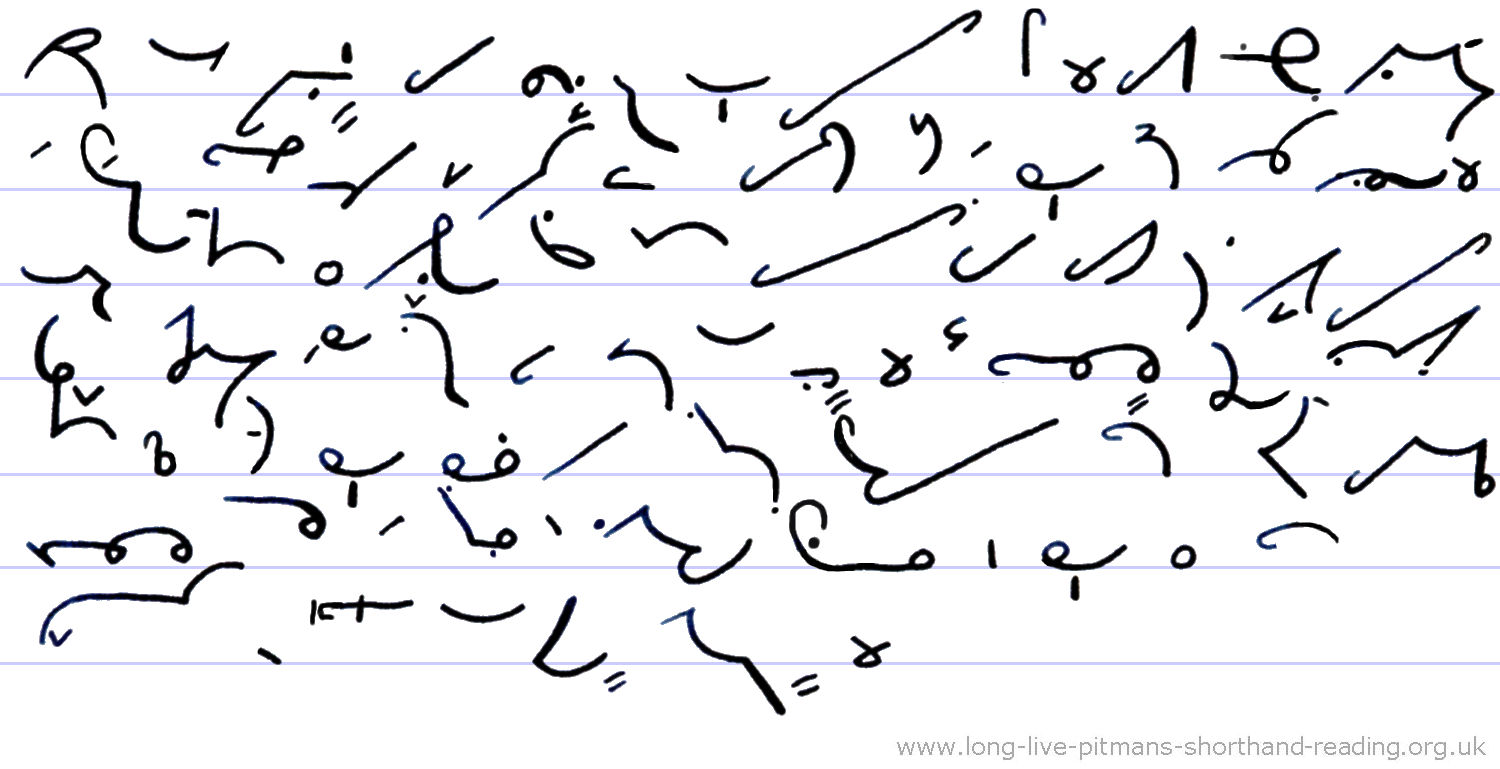
Last year in the UK we seemed to have no winter at all. We had excessive
rainfall and flooding across the country, but the really cold weather,
ice and snow were mostly*
missing. Now that autumn is receding fast, I am
wondering whether we shall see a real winter this time, and it certainly
has not arrived yet here in Kent. With the Christmas season marching
towards us, snow scenes are appearing everywhere, from shop windows to
Christmas cards and packets* of artificial flakes, but snow is more
likely to occur in January and February.
* "mostly" Omits the
lightly-sounded T sound
* "packets" Insert the second
vowel, so it is not misread as "packs"
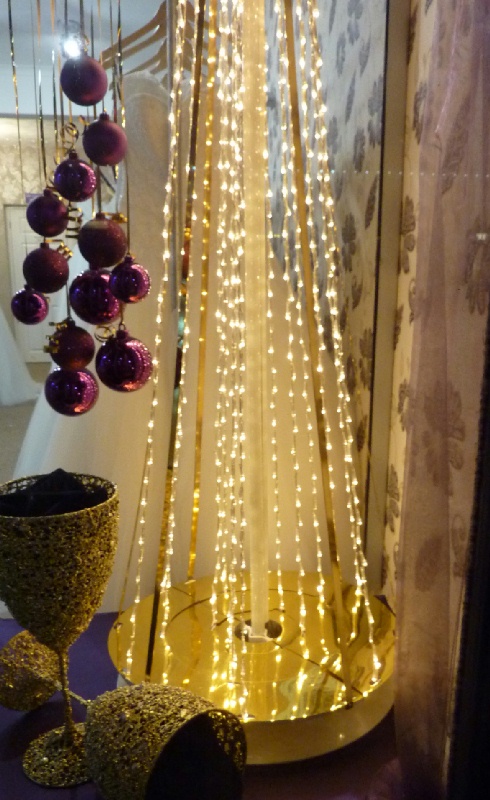
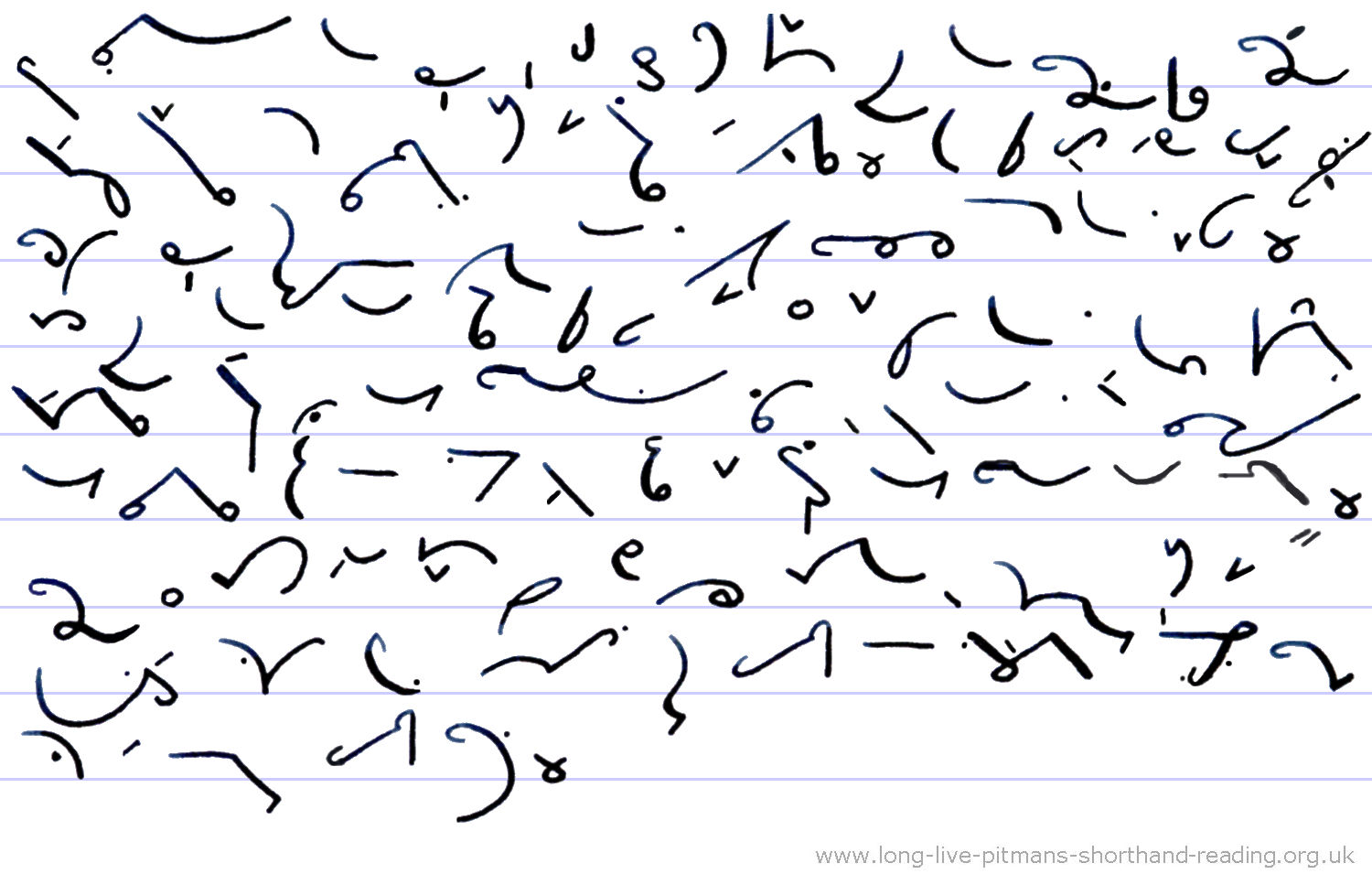
People hanker for snow but do not spend their time wishing for freezing* conditions, frozen* burst pipes or slippery ice on the paths and roads.
They just want soft white user-friendly snow so that we can live in a
real Christmas card for a while. I am not wishing for any of this just
yet, as I still have a few tulip bulbs, bought late in the garden centre
sale, to put in a pot somewhere, in the hopes that they can catch up
with those I planted in the garden in October. Freezing is also not on
my list as that means I will have to remove the ice on the fishpond
early every morning*, so that the water can absorb oxygen from the air
and keep the water fresh.
* "freezing" and "frozen" Always insert the vowel
* "morning" You can also intersect stroke M for this word
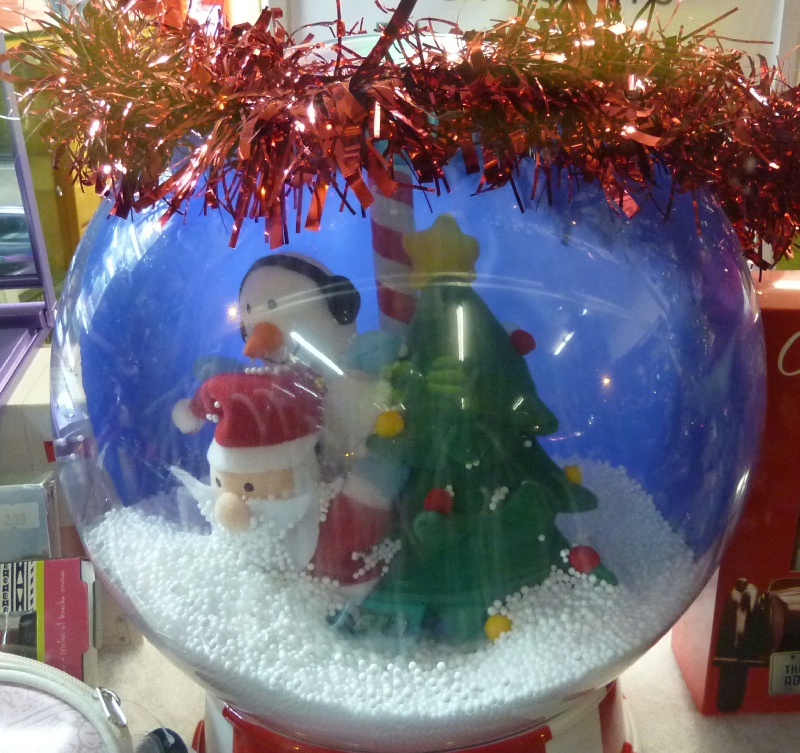
Inconvenience captured
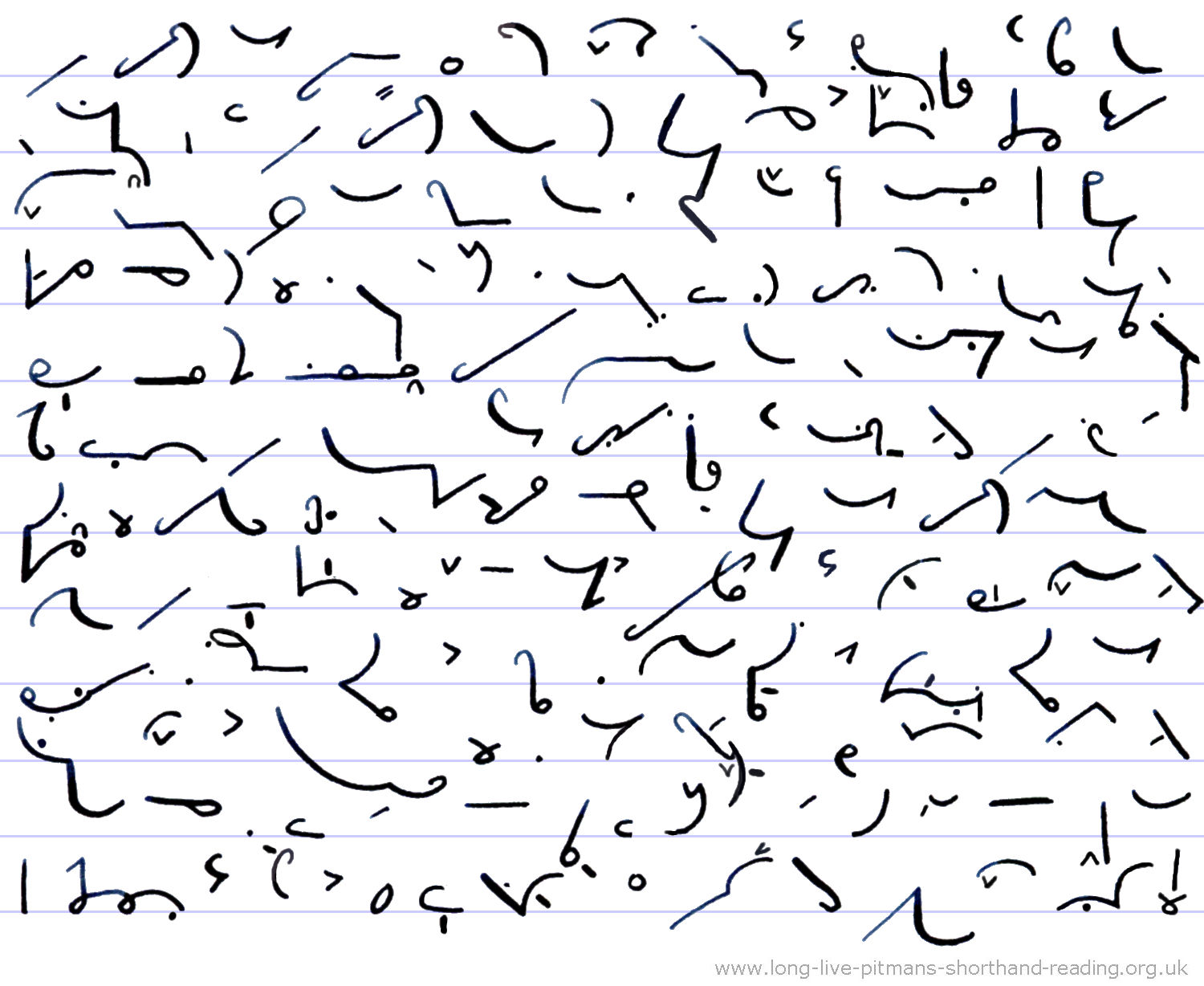
Our weather in the UK is very mild compared with the severe conditions
that others have to endure, but with our weather being so changeable
most of the time, it seems that we like to keep ourselves in practice
for a fight with it, in case it suddenly turns against us. A bit of ice,
a nippy cold east wind, or a few inches of snow gives us the excuse we
are looking for to engage in the battle and then claim our victory over
the wintry conditions that intrude upon our comfort and schedules. We
have been trained to always expect a change in the weather, and never
leave our coat at home. I quite* enjoy the winter months, with the low
sun lighting up the scenery, the stark shapes of the trees, the long
shadows and the illuminated shops in the fading light of the afternoon.
The only proviso is that I am wrapped up against the cold, and can
choose when I shall and shall not go out in it, and it seems to me* that
the author of the first quote below has really been "reading my mail"!
* "quite" (above the line) and "could" (on the line) should both not be
phrased, so that neither is misread as "can". You could insert the
diphthong sign in "quite" for clarity, although not dictionary.
* "it seems to me" Insert the vowel after "me"
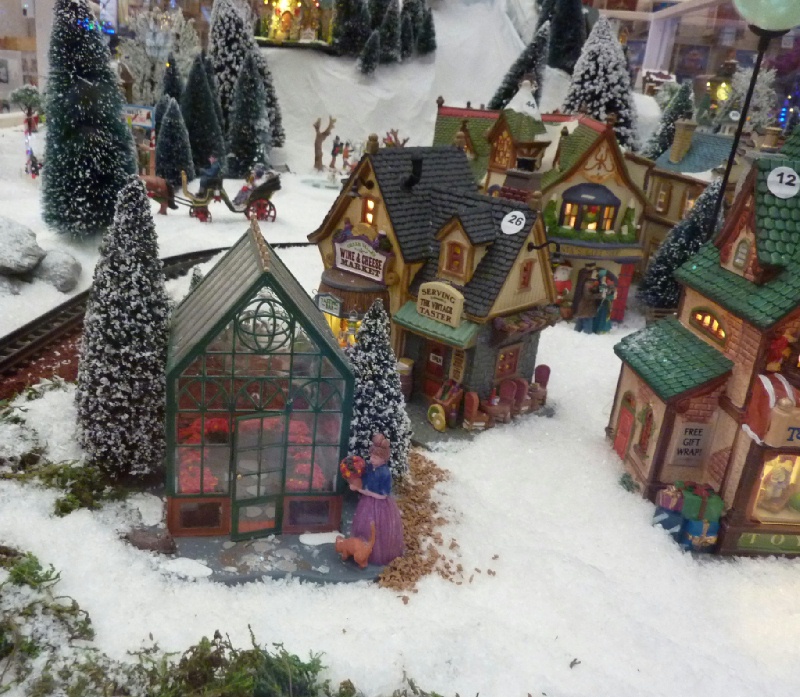
Note the Gregg emblem on the greenhouse,
obviously where the lady sits
to practise the exercises
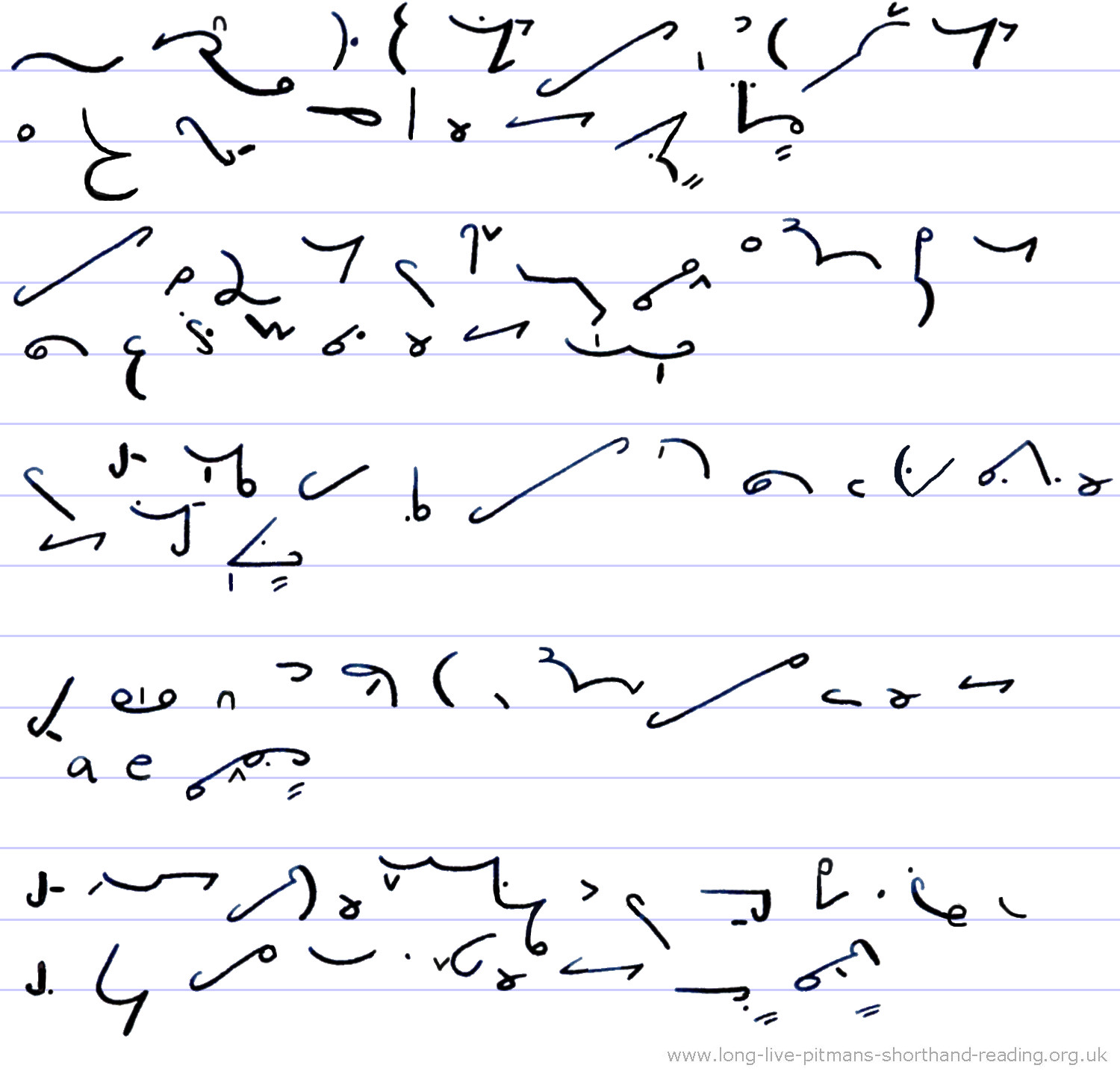
Many human beings say that they enjoy the
winter, but what they really enjoy is feeling proof against it.
Richard* Adams
Winter is the season in which people try to keep the house as warm as it
was in the summer, when they complained about the heat. Unknown
People don't notice whether it's winter or summer when they're* happy.
Anton* Chekhov
June suns, you cannot store them to warm the winterís cold. A E
Housman
Don't knock the weather. Nine-tenths of the people couldn't start a
conversation if it didn't change once in a while. Kin Hubbard
* "Richard" The full strokes J and Rd for this
name, and hooked Jr for "Roger" to keep these two different
* "they're" Apostrophied versions
use full outlines and always have the vowel sign
* "Anton" written like this lets you know there is no final vowel,
unlike the dictionary outline for "Anthony" or "Antonia" which is halved
N+full N
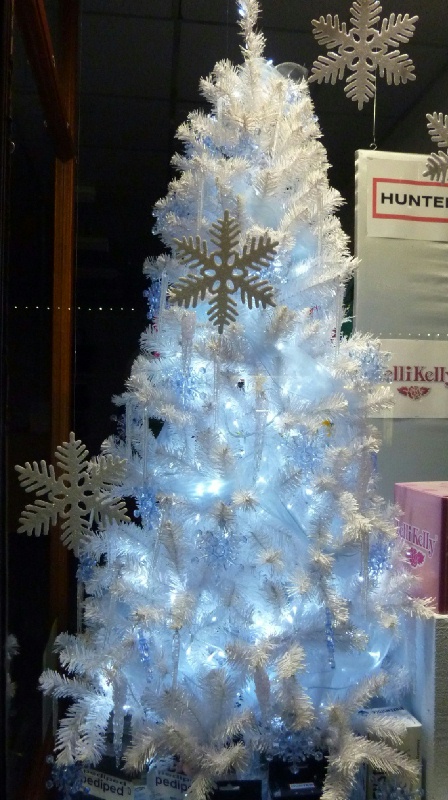
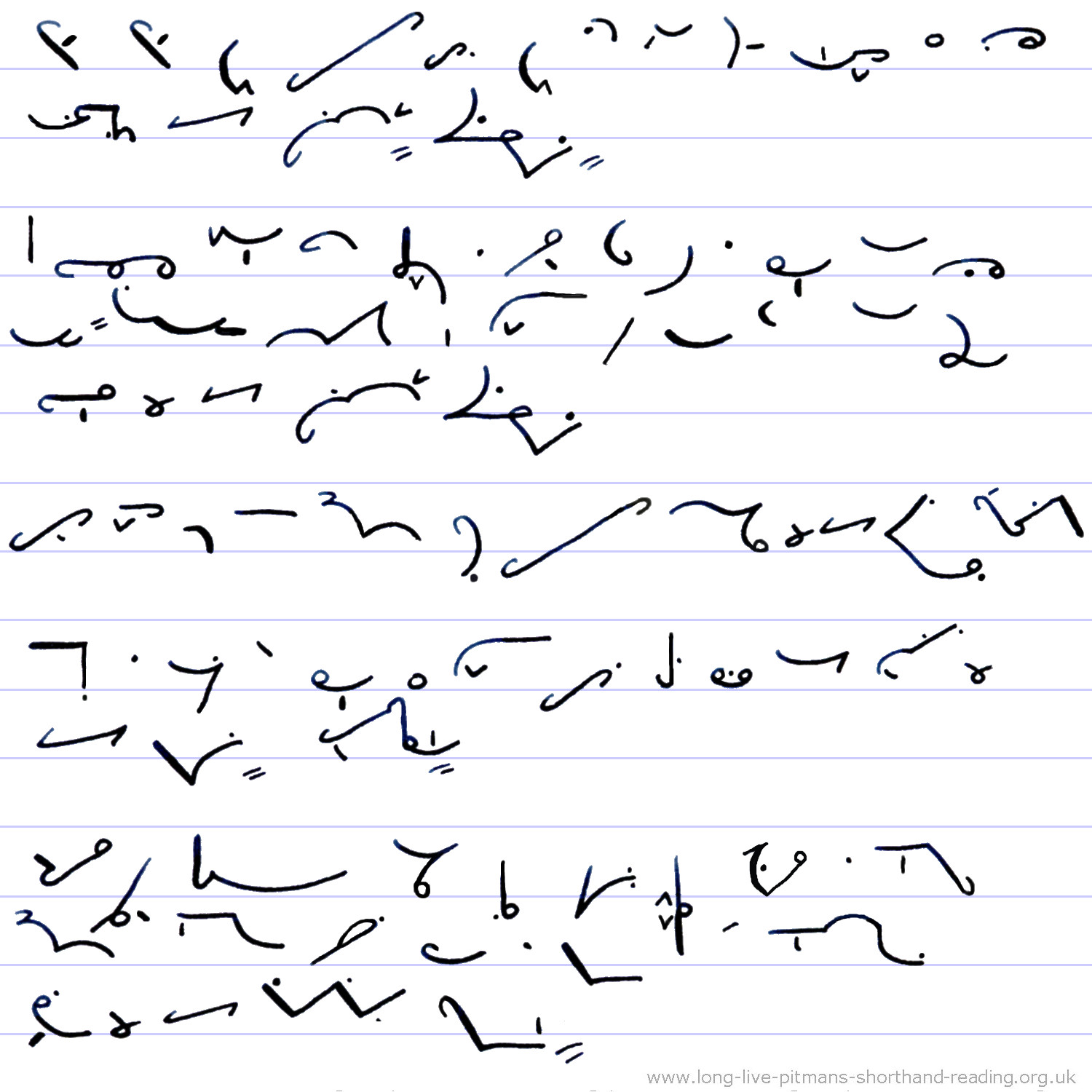
Blow, blow, thou winter wind, thou art not so unkind as man's
ingratitude. William Shakespeare
At Christmas, I no more desire a rose, than wish a snow in May's
newfangled mirth; but like each thing that in season grows. William
Shakespeare
One kind word can warm three* winter months. Japanese Proverb
Getting an inch of snow is like winning 10 cents in the lottery. Bill
Watterson
Always choose the adventure ... unless it's chilly outside and there's* a cup of warm coffee resting near a book** and comfy sofa. Barbara* Brooke (606 words)
* "three" Insert the vowel, as "through" would also make sense here
* "there's"
Apostrophied versions
use full outlines and always have the vowel sign
* The short spelling "Barbra" would be written B+Ray+hooked
Br, to provide a distinction, although the pronunciations are generally
identical
** She must mean a shorthand book, surely, for a cosy indoor adventure
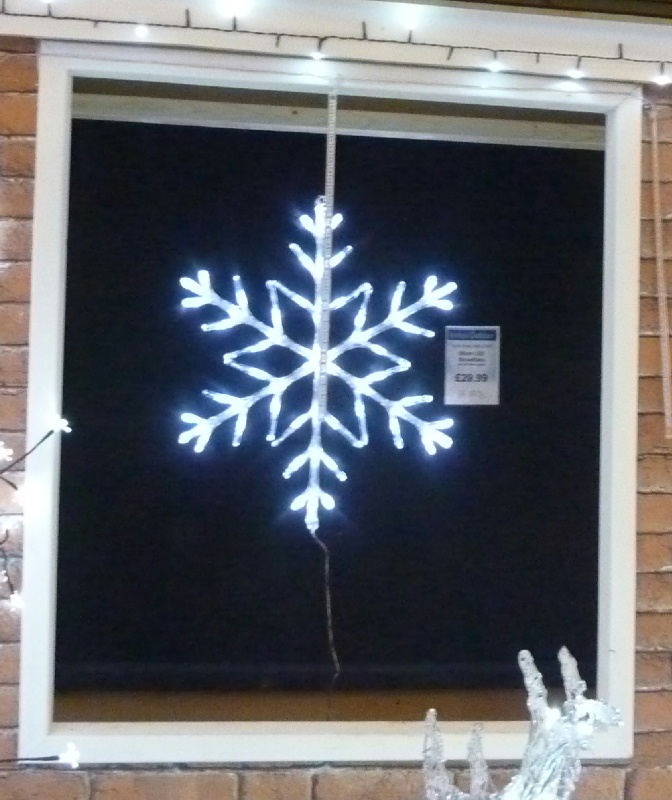
Top of page
|
|
